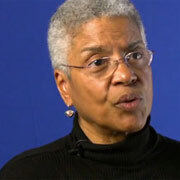Oral History
Item set
- Title
- Oral History
Items
-
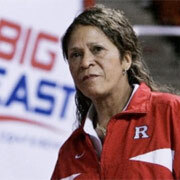 Film: Leading Through Hoops: An Interview with Vivian Stringer Coach C. Vivian Stringer is the head coach of the Rutgers University women’s basketball team. Stringer holds the distinction of being the first coach, men’s or women’s, in NCAA history to lead three different women’s programs to the NCAA Final Four. She is the third all-time winningest coach in women’s basketball. She was formerly the head coach of the University of Iowa women’s basketball team and the Cheyney State women’s basketball team. Stringer was the 2001 inductee into the Women’s Basketball Hall of Fame and was named one of the 101 Most Influential Minorities in Sports by Sports Illustrated magazine. She is the three-time national coach of the year and was the assistant coach for the gold medal-winning 2004 U.S. Olympic team. Stringer is also the author of the autobiographical book "Standing Tall." In partnership with the Writers House, Rutgers University Department of English, the Institute for Women’s Leadership piloted Transforming Lives. This project combining filmmaking and interview skills to help our undergraduate Leadership Scholars learn from women leaders who are making a difference in the world. This documentary was created by Leadership Scholar Vanity Jenkins, Class of 2010 with the assistance of instructor Dena Seidel and filmmakers Pilar Timpane and Stephen Beeston.
Film: Leading Through Hoops: An Interview with Vivian Stringer Coach C. Vivian Stringer is the head coach of the Rutgers University women’s basketball team. Stringer holds the distinction of being the first coach, men’s or women’s, in NCAA history to lead three different women’s programs to the NCAA Final Four. She is the third all-time winningest coach in women’s basketball. She was formerly the head coach of the University of Iowa women’s basketball team and the Cheyney State women’s basketball team. Stringer was the 2001 inductee into the Women’s Basketball Hall of Fame and was named one of the 101 Most Influential Minorities in Sports by Sports Illustrated magazine. She is the three-time national coach of the year and was the assistant coach for the gold medal-winning 2004 U.S. Olympic team. Stringer is also the author of the autobiographical book "Standing Tall." In partnership with the Writers House, Rutgers University Department of English, the Institute for Women’s Leadership piloted Transforming Lives. This project combining filmmaking and interview skills to help our undergraduate Leadership Scholars learn from women leaders who are making a difference in the world. This documentary was created by Leadership Scholar Vanity Jenkins, Class of 2010 with the assistance of instructor Dena Seidel and filmmakers Pilar Timpane and Stephen Beeston. -
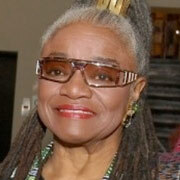 Film: Taking Flight: An Interview with Faith Ringgold Faith Ringgold began her artistic career more than thirty-five years ago as a painter. Today, she is best known for her painted story quilts – art that combines painting, quilted fabric and storytelling. She has exhibited in major museums in the USA, Europe, South America, Asia, Africa, and the Middle East. She is in the permanent collection of many museums including the Studio Museum in Harlem, the Solomon R. Guggenheim Museum, The Metropolitan Museum of Art, and The Museum of Modern Art. Her first book, Tar Beach was a Caldecott Honor Book and winner of the Coretta Scott King Award for Illustration, among numerous other honors. She has written and illustrated eleven children’s books. She has received more than seventy-five awards,fellowships, citations and honors, including the Solomon R. Guggenheim Fellowship for painting, two National Endowment for the Arts Awards and seventeen honorary doctorates, one of which is from her alma mater The City College of New York. In partnership with the Writers House, Rutgers University Department of English, the Institute for Women’s Leadership piloted Transforming Lives. This project combining filmmaking and interview skills to help our undergraduate Leadership Scholars learn from women leaders who are making a difference in the world. This documentary was created by Leadership Scholar Karin Zahavi, Class of 2010, with the assistance of instructor Dena Seidel and filmmakers Pilar Timpane and Stephen Beeston.
Film: Taking Flight: An Interview with Faith Ringgold Faith Ringgold began her artistic career more than thirty-five years ago as a painter. Today, she is best known for her painted story quilts – art that combines painting, quilted fabric and storytelling. She has exhibited in major museums in the USA, Europe, South America, Asia, Africa, and the Middle East. She is in the permanent collection of many museums including the Studio Museum in Harlem, the Solomon R. Guggenheim Museum, The Metropolitan Museum of Art, and The Museum of Modern Art. Her first book, Tar Beach was a Caldecott Honor Book and winner of the Coretta Scott King Award for Illustration, among numerous other honors. She has written and illustrated eleven children’s books. She has received more than seventy-five awards,fellowships, citations and honors, including the Solomon R. Guggenheim Fellowship for painting, two National Endowment for the Arts Awards and seventeen honorary doctorates, one of which is from her alma mater The City College of New York. In partnership with the Writers House, Rutgers University Department of English, the Institute for Women’s Leadership piloted Transforming Lives. This project combining filmmaking and interview skills to help our undergraduate Leadership Scholars learn from women leaders who are making a difference in the world. This documentary was created by Leadership Scholar Karin Zahavi, Class of 2010, with the assistance of instructor Dena Seidel and filmmakers Pilar Timpane and Stephen Beeston. -
 Interview: Alexander, Walter G. II, 2009 Dr. Alexander was born in 1922 in Petersburg, Virginia. He attended Orange High school in New Jersey before he was accepted to Rutgers on a scholarship. He was a member of ROTC, the engineering program, and the Rutgers track team. A Tuskegee Airman, he graduated from Rutgers with a degree in mechanical engineering, then went to work for Douglas Aircraft as a draftsman in California. He enlisted in the USAAF in 1944 and trained at Keesler and Tuskegee Army Airbases as a fighter pilot. World War II ended before he was deployed. He later attended Howard University's dental school and became a distinguished dentist in New Jersey. Dr. Alexander was inducted into the Hall of Fame of the Rutgers African-American Alunni Alliance in 2007. He was inducted into the Rutgers Hall of Distinguished Alumni in 2009.
Interview: Alexander, Walter G. II, 2009 Dr. Alexander was born in 1922 in Petersburg, Virginia. He attended Orange High school in New Jersey before he was accepted to Rutgers on a scholarship. He was a member of ROTC, the engineering program, and the Rutgers track team. A Tuskegee Airman, he graduated from Rutgers with a degree in mechanical engineering, then went to work for Douglas Aircraft as a draftsman in California. He enlisted in the USAAF in 1944 and trained at Keesler and Tuskegee Army Airbases as a fighter pilot. World War II ended before he was deployed. He later attended Howard University's dental school and became a distinguished dentist in New Jersey. Dr. Alexander was inducted into the Hall of Fame of the Rutgers African-American Alunni Alliance in 2007. He was inducted into the Rutgers Hall of Distinguished Alumni in 2009. -
Interview: Amutah, Ndidi, 2016Ndidi Amutah was born in Trenton, New Jersey, in 1981 to Nigerian parents. Dr. Amutah grew up in Trenton and graduated from Trenton Central High School in 1999. She attended Livingston College at Rutgers, where she was active in the Livingston College Governing Association. After graduating from Livingston in 2003 with a B.A. in African Studies and a B.S. in Public Health, she earned a Master's in Public Health at George Washington University. Dr. Amutah attended the University of Maryland, College Park and studied maternal child health for her Ph.D. Dr. Amutah completed a Kellogg Foundation postdoctoral fellowship, served as a professor at Montclair State University, and then became a professor of public health and community medicine at the Tufts University School of Medicine.
-
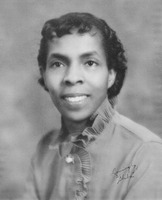 Interview: Archibald, Alice Jennings, 1997 Mrs. Alice Jennings Archibald was born and raised in New Brunswick New Jersey and graduated from New Brunswick High School in 1923 as salutatorian of her class. She attended Howard University and graduated there in 1927 with her Bachelor’s Degree, and also received a Bachelor’s Degree from the University of Cincinnati in 1928. Mrs. Archibald became the first African-American woman to graduate from the Rutgers Graduate School of Education in 1938. During World War II, Mrs. Archibald worked for Raritan Arsenal as a completion clerk and a neighborhood Air Warden. After the war, she joined the staff of the New Brunswick Urban League as assistant to the executive director in 1946 and then worked at the Employment Office as a counselor. With the Urban League, Mrs. Archibald hired the first black man to Johnson and Johnson, and hired the first black teachers in New Brunswick. She continued as a counselor until her retirement in 1972. Mrs. Archibald was a life-long member of the Mount Zion AME Church of New Brunswick, where she served as the church historian.
Interview: Archibald, Alice Jennings, 1997 Mrs. Alice Jennings Archibald was born and raised in New Brunswick New Jersey and graduated from New Brunswick High School in 1923 as salutatorian of her class. She attended Howard University and graduated there in 1927 with her Bachelor’s Degree, and also received a Bachelor’s Degree from the University of Cincinnati in 1928. Mrs. Archibald became the first African-American woman to graduate from the Rutgers Graduate School of Education in 1938. During World War II, Mrs. Archibald worked for Raritan Arsenal as a completion clerk and a neighborhood Air Warden. After the war, she joined the staff of the New Brunswick Urban League as assistant to the executive director in 1946 and then worked at the Employment Office as a counselor. With the Urban League, Mrs. Archibald hired the first black man to Johnson and Johnson, and hired the first black teachers in New Brunswick. She continued as a counselor until her retirement in 1972. Mrs. Archibald was a life-long member of the Mount Zion AME Church of New Brunswick, where she served as the church historian. -
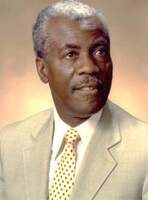 Interview: Armstead, Bryson C. Sr., 2013 Bryson C. Armstead, Sr. was born on December 21, 1923, in Haddonfield, New Jersey. He graduated from Memorial High School and worked for Campbell’s Soup before World War II. During the war, Bryson joined the US Navy and served as a steward’s mate. After the war, he pursued college and graduate education on the GI Bill. He received BA in social science from St. Augustine's College in Raleigh, NC, and a master's from Glassboro State College (now Rowan University), and pursued additional graduate work at Temple University in Philadelphia. He taught elementary schools for 35 years and retired from the Philadelphia School District in 1986. He lived for many years in Lawnside, NJ, and served as a Lawnside Borough Councilman for 9 years. He served on the Board of Education in Lawnside as well as in Camden. He was a lifetime member of the NAACP and Alpha Phi Alpha fraternity. His community spirit was exemplified through his tireless efforts for more than thirty years to restore and maintain Mount Peace Cemetery, a historic black burial ground, in Lawnside. Mr. Armstead's interview primarily focuses on his early life in Camden County, World War II military experience, and his education following the war. It appears that a second oral history session was planned, but did not take place. Mr. Armstead passed away in 2014.
Interview: Armstead, Bryson C. Sr., 2013 Bryson C. Armstead, Sr. was born on December 21, 1923, in Haddonfield, New Jersey. He graduated from Memorial High School and worked for Campbell’s Soup before World War II. During the war, Bryson joined the US Navy and served as a steward’s mate. After the war, he pursued college and graduate education on the GI Bill. He received BA in social science from St. Augustine's College in Raleigh, NC, and a master's from Glassboro State College (now Rowan University), and pursued additional graduate work at Temple University in Philadelphia. He taught elementary schools for 35 years and retired from the Philadelphia School District in 1986. He lived for many years in Lawnside, NJ, and served as a Lawnside Borough Councilman for 9 years. He served on the Board of Education in Lawnside as well as in Camden. He was a lifetime member of the NAACP and Alpha Phi Alpha fraternity. His community spirit was exemplified through his tireless efforts for more than thirty years to restore and maintain Mount Peace Cemetery, a historic black burial ground, in Lawnside. Mr. Armstead's interview primarily focuses on his early life in Camden County, World War II military experience, and his education following the war. It appears that a second oral history session was planned, but did not take place. Mr. Armstead passed away in 2014. -
 Interview: Bethel, Leonard, 2021 Dr. Leonard Bethel is a Professor Emeritus in the Department of Africana Studies at Rutgers. He was born in 1939 in Philadelphia, Pennsylvania. In the interview, he describes growing up in the predominantly Black neighborhood of West Philadelphia, being involved in the Fellowship House, through which he became exposed to the Civil Rights Movement, and working at La Citadelle Camp, operated by activist and educator Layle Lane. After attending Lincoln University for his undergraduate degree, he earned a Master of Divinity at Johnson C. Smith University, during which time he was active in desegregation efforts in North Carolina. He earned a Master of Arts in Theology at New Brunswick Theological Seminary (NBTS) and received a doctorate at the Rutgers Graduate School of Education. He became an ordained Presbyterian minister in 1964. After coming to Rutgers in 1969, he worked to establish the Department of Africana Studies, chaired the department for fifteen years, and served as a faculty member for forty-two years. Through his ministry, he became involved in the anti-apartheid movement, as well as in community service organizations and initiatives. A long-time resident of Plainfield, he served as the pastor at Bethel Presbyterian Church. He is the author of numerous books and articles including Educating African Leaders: Missionism in America and La Citadelle: Layle Lane and Social Activism in 20th Century America.
Interview: Bethel, Leonard, 2021 Dr. Leonard Bethel is a Professor Emeritus in the Department of Africana Studies at Rutgers. He was born in 1939 in Philadelphia, Pennsylvania. In the interview, he describes growing up in the predominantly Black neighborhood of West Philadelphia, being involved in the Fellowship House, through which he became exposed to the Civil Rights Movement, and working at La Citadelle Camp, operated by activist and educator Layle Lane. After attending Lincoln University for his undergraduate degree, he earned a Master of Divinity at Johnson C. Smith University, during which time he was active in desegregation efforts in North Carolina. He earned a Master of Arts in Theology at New Brunswick Theological Seminary (NBTS) and received a doctorate at the Rutgers Graduate School of Education. He became an ordained Presbyterian minister in 1964. After coming to Rutgers in 1969, he worked to establish the Department of Africana Studies, chaired the department for fifteen years, and served as a faculty member for forty-two years. Through his ministry, he became involved in the anti-apartheid movement, as well as in community service organizations and initiatives. A long-time resident of Plainfield, he served as the pastor at Bethel Presbyterian Church. He is the author of numerous books and articles including Educating African Leaders: Missionism in America and La Citadelle: Layle Lane and Social Activism in 20th Century America. -
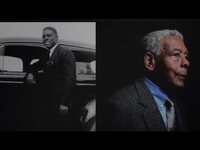 Interview: Brown, William Neal, 2005 Dr. Brown was born in Warrenton, Georgia, in 1919. He grew up in Aliquippa, Pennsylvania as the oldest of six siblings. He attended Hampton Institute and graduated in 1941 with a English and History major. A volunteer for the Army Air Force, he attended Officer Candidate School in Miami Beach and then volunteered to be trained at Tuskegee Air Field. He served as a special services officer with the 618th Bomb Squadron in the American Theater of Operations. After the war he attended Columbia University with the help of the GI Bill and he graduated in 1950. He was hired as the first African-American Professor at Rutgers University in 1956. He worked at the School of Social Work for 33 years. There were many highlights of Dr. Brown’s Academic career, but one that especially stands out was his debate at Rutgers with Malcolm X at the Rutgers School of Pharmacy.
Interview: Brown, William Neal, 2005 Dr. Brown was born in Warrenton, Georgia, in 1919. He grew up in Aliquippa, Pennsylvania as the oldest of six siblings. He attended Hampton Institute and graduated in 1941 with a English and History major. A volunteer for the Army Air Force, he attended Officer Candidate School in Miami Beach and then volunteered to be trained at Tuskegee Air Field. He served as a special services officer with the 618th Bomb Squadron in the American Theater of Operations. After the war he attended Columbia University with the help of the GI Bill and he graduated in 1950. He was hired as the first African-American Professor at Rutgers University in 1956. He worked at the School of Social Work for 33 years. There were many highlights of Dr. Brown’s Academic career, but one that especially stands out was his debate at Rutgers with Malcolm X at the Rutgers School of Pharmacy. -
Interview: Browne, Joseph, 1991Joseph Browne founded the Black Organization of Students (BOS) together with Richard Roper. Browne grew up in Newark and attended white Catholic schools prior to coming to the university. He had left Rutgers for a time to join VISTA (Volunteers in Service to America) and participated in the Newark City Council election of 1968.
-
 Interview: Busia, Abena, 2015 Founding member of the Center for Women's Global Leadership and Center for African Studies, Abena Busia is an Associate Professor in the Department of Women's and Gender Studies and the Department of English at Rutgers. She is also co-director and co-editor of the groundbreaking Women Writing Africa Project, a multi-volume anthology published by the Feminist Press at CUNY. Busia articulates the significance of communities and leadership at Rutgers and describes negotiating a space within Rutgers to consider women's experiences, blackness, and African womanness. She emphasizes the value of a single-sex education and describes Douglass as a place for nurturing women's leadership.
Interview: Busia, Abena, 2015 Founding member of the Center for Women's Global Leadership and Center for African Studies, Abena Busia is an Associate Professor in the Department of Women's and Gender Studies and the Department of English at Rutgers. She is also co-director and co-editor of the groundbreaking Women Writing Africa Project, a multi-volume anthology published by the Feminist Press at CUNY. Busia articulates the significance of communities and leadership at Rutgers and describes negotiating a space within Rutgers to consider women's experiences, blackness, and African womanness. She emphasizes the value of a single-sex education and describes Douglass as a place for nurturing women's leadership. -
 Interview: Byrd, Arnold Norris, 2022 This interview was recorded as part of the Black Camden Oral History Project. Arnold Norris Byrd was born to Laura Bertha and Ralph Herman Byrd in Camden, New Jersey, in 1939. Byrd attended Rutgers University in New Brunswick from 1957 to 1961 and earned his Bachelor’s in Psychology while participating in athletics. At Rutgers he was part of the Black Student Union and the ROTC. In 1976, he graduated from Antioch College with a Master’s in Community Education. During the interview, Byrd discusses his family’s decision to move from Virginia as part of the Great Migration and his positive experiences growing up in Camden. He touches on the issue of school integration in the city. The interview includes information about his experiences in the ROTC and his military service in Korea. He ended his service as a captain in the reserves. He describes race relations in the military. He talks about his life-long participation in athletics, especially during his time at Rutgers University and while serving in the military. Byrd returned to Camden and spent most of his life residing in his hometown. The interview highlights his civil service and economic development work in the city, including work for the Welfare Board and his decades as the Executive Director of the Camden County Council on Economic Opportunity (OEO). He describes his relationship with Camden leader Poppy Sharp and the Black People’s Unity Movement. He also discusses his perspectives on Martin Luther King Jr. and Malcom X.
Interview: Byrd, Arnold Norris, 2022 This interview was recorded as part of the Black Camden Oral History Project. Arnold Norris Byrd was born to Laura Bertha and Ralph Herman Byrd in Camden, New Jersey, in 1939. Byrd attended Rutgers University in New Brunswick from 1957 to 1961 and earned his Bachelor’s in Psychology while participating in athletics. At Rutgers he was part of the Black Student Union and the ROTC. In 1976, he graduated from Antioch College with a Master’s in Community Education. During the interview, Byrd discusses his family’s decision to move from Virginia as part of the Great Migration and his positive experiences growing up in Camden. He touches on the issue of school integration in the city. The interview includes information about his experiences in the ROTC and his military service in Korea. He ended his service as a captain in the reserves. He describes race relations in the military. He talks about his life-long participation in athletics, especially during his time at Rutgers University and while serving in the military. Byrd returned to Camden and spent most of his life residing in his hometown. The interview highlights his civil service and economic development work in the city, including work for the Welfare Board and his decades as the Executive Director of the Camden County Council on Economic Opportunity (OEO). He describes his relationship with Camden leader Poppy Sharp and the Black People’s Unity Movement. He also discusses his perspectives on Martin Luther King Jr. and Malcom X. -
 Interview: Carmichael, Rosalind, 2015 Dr. Rosalind Carmichael was born in Fayetteville, North Carolina. She attended Douglass College and graduated in 1972 with a degree in English. She earned her Masters in Education from the Rutgers Graduate School of Education (1977), and her PhD in African American Studies from Temple University (2000). Dr. Carmichael worked as an English teacher at Malcolm X Shabazz High School for over thirty years.
Interview: Carmichael, Rosalind, 2015 Dr. Rosalind Carmichael was born in Fayetteville, North Carolina. She attended Douglass College and graduated in 1972 with a degree in English. She earned her Masters in Education from the Rutgers Graduate School of Education (1977), and her PhD in African American Studies from Temple University (2000). Dr. Carmichael worked as an English teacher at Malcolm X Shabazz High School for over thirty years. -
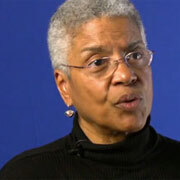 Interview: Clarke, Cheryl, 2012 Cheryl Clarke is a black lesbian feminist whose poetry, editorial work, and career at Rutgers have had a significant impact on black, lesbian, and women’s communities. She is the author of four collections of poetry, often centered around themes of black women’s issues and lesbian issues. She served as an editor of the lesbian publication Conditions for nine years and began working at Rutgers University in 1970. At Rutgers, she served as the founding Director of Diverse Community Affairs and Lesbian/Gay Concerns, which became the Office of Social Justice Education and LGBT Communities in 2004. She was the Dean of Students of Livingston Campus between 2009-2013 and retired from Rutgers in 2013 after 41 years of service. In this interview, Clarke discusses her upbringing in Washington, D.C. during the Civil Rights Movement, her passion for writing, and the role of feminism. Clarke proposes the idea that we, as a society, must be in the “project of transformation” to “create a new humanity” as we reconcile gender and race issues. --- See also an additional interview with Cheryl Clarke, recorded in 2018 by the Rutgers Oral History Archives.
Interview: Clarke, Cheryl, 2012 Cheryl Clarke is a black lesbian feminist whose poetry, editorial work, and career at Rutgers have had a significant impact on black, lesbian, and women’s communities. She is the author of four collections of poetry, often centered around themes of black women’s issues and lesbian issues. She served as an editor of the lesbian publication Conditions for nine years and began working at Rutgers University in 1970. At Rutgers, she served as the founding Director of Diverse Community Affairs and Lesbian/Gay Concerns, which became the Office of Social Justice Education and LGBT Communities in 2004. She was the Dean of Students of Livingston Campus between 2009-2013 and retired from Rutgers in 2013 after 41 years of service. In this interview, Clarke discusses her upbringing in Washington, D.C. during the Civil Rights Movement, her passion for writing, and the role of feminism. Clarke proposes the idea that we, as a society, must be in the “project of transformation” to “create a new humanity” as we reconcile gender and race issues. --- See also an additional interview with Cheryl Clarke, recorded in 2018 by the Rutgers Oral History Archives. -
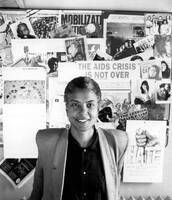 Interview: Clarke, Cheryl, 2018 Cheryl Clarke was born on May 16, 1947 in Washington, D.C. Her father served in the U.S. Army in the Red Ball Express in France after the Allied invasion in June 1944. Growing up in Northwest Washington, D.C., Cheryl attended parochial schools, including Immaculate Conception Academy for high school. From 1965 to 1969, Cheryl attended Howard University and majored in English. During college, she worked part time at the Washington Post and at a Peace Corps office. In 1969, Cheryl came to Rutgers-New Brunswick as a graduate student in English. She earned her M.A. in English in 1974. Cheryl taught courses in the Urban University Program and discusses educational opportunity programs in the interview. From 1972 to 1974, she taught courses in the English Department at Rutgers. A life-long activist, Cheryl discusses her many experiences participating in social movements, including the anti-war and Black Power movements at Howard University, anti-apartheid activism at Rutgers, LGBT activism, feminism and lesbian-feminism, and activism surrounding the defense of Assata Shakur. From 1974 to 1978, Cheryl worked in Middlesex County in the Comprehensive Employment and Training Program. In 1978, she returned to Rutgers to study social work, obtaining her M.S.W. in 1980. In 1980, Cheryl began working in Student Affairs at Rutgers. In 1992, she served as the founding director of the Office of Diverse Community Affairs and Lesbian/Gay Concerns (now called the Center for Social Justice Education and LGBT Communities). From 2009 to 2013, Cheryl served as the Dean of Students for Livingston Campus. In 2000, she earned her Ph.D. in English. At Rutgers, Cheryl coordinated the university-wide Committee to Advance Our Common Purposes and the New Brunswick-wide Bias Prevention Education Committee, in addition to establishing the university-wide network of "Liaisons" and teaching numerous courses. Cheryl is the author of Narratives: Poems in the Tradition of Black Women (1982); Living as a Lesbian (1986); Humid Pitch (1989); Experimental Love (1993); After Mecca: Women Poets and the Black Arts Movement (2005); and The Days of Good Looks: Prose and Poetry, 1980-2005 (2006). From 1981 to 1990, she served as a member of the editorial collective of the feminist literary journal Conditions. In 2013, Cheryl retired after forty-one years at Rutgers. Cheryl and her partner Barbara Balliet co-own Blenheim Hill Books in Hobart, New York and organize the annual Hobart Festival of Women Writers.
Interview: Clarke, Cheryl, 2018 Cheryl Clarke was born on May 16, 1947 in Washington, D.C. Her father served in the U.S. Army in the Red Ball Express in France after the Allied invasion in June 1944. Growing up in Northwest Washington, D.C., Cheryl attended parochial schools, including Immaculate Conception Academy for high school. From 1965 to 1969, Cheryl attended Howard University and majored in English. During college, she worked part time at the Washington Post and at a Peace Corps office. In 1969, Cheryl came to Rutgers-New Brunswick as a graduate student in English. She earned her M.A. in English in 1974. Cheryl taught courses in the Urban University Program and discusses educational opportunity programs in the interview. From 1972 to 1974, she taught courses in the English Department at Rutgers. A life-long activist, Cheryl discusses her many experiences participating in social movements, including the anti-war and Black Power movements at Howard University, anti-apartheid activism at Rutgers, LGBT activism, feminism and lesbian-feminism, and activism surrounding the defense of Assata Shakur. From 1974 to 1978, Cheryl worked in Middlesex County in the Comprehensive Employment and Training Program. In 1978, she returned to Rutgers to study social work, obtaining her M.S.W. in 1980. In 1980, Cheryl began working in Student Affairs at Rutgers. In 1992, she served as the founding director of the Office of Diverse Community Affairs and Lesbian/Gay Concerns (now called the Center for Social Justice Education and LGBT Communities). From 2009 to 2013, Cheryl served as the Dean of Students for Livingston Campus. In 2000, she earned her Ph.D. in English. At Rutgers, Cheryl coordinated the university-wide Committee to Advance Our Common Purposes and the New Brunswick-wide Bias Prevention Education Committee, in addition to establishing the university-wide network of "Liaisons" and teaching numerous courses. Cheryl is the author of Narratives: Poems in the Tradition of Black Women (1982); Living as a Lesbian (1986); Humid Pitch (1989); Experimental Love (1993); After Mecca: Women Poets and the Black Arts Movement (2005); and The Days of Good Looks: Prose and Poetry, 1980-2005 (2006). From 1981 to 1990, she served as a member of the editorial collective of the feminist literary journal Conditions. In 2013, Cheryl retired after forty-one years at Rutgers. Cheryl and her partner Barbara Balliet co-own Blenheim Hill Books in Hobart, New York and organize the annual Hobart Festival of Women Writers. -
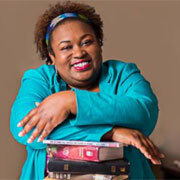 Interview: Cooper, Brittney, 2015 Brittney Cooper is Associate Professor of Women’s and Gender Studies and Africana Studies at Rutgers University. She is a Black feminist theorist who specializes in the study of Black women’s intellectual history, Hip Hop generation feminism, and race and gender representation in popular culture. Dr. Cooper is also a sought-after public speaker and commentator, her work and words have appeared in the New York Times, the Washington Post, TV Guide, the Los Angeles Times, MSNBC’s Melissa Harris-Perry Show, All In With Chris Hayes, Disrupt with Karen Finney, and Third Rail on Al-Jazeera America, among many others. She is also a co-founder of the Crunk Feminist Collective, a popular feminist blog. Dr. Brittney Cooper is a proud alumna of Howard University (class of 2002) and a proud native of North Louisiana. In this interview, Dr. Cooper speaks about her day-to-day work as an Assistant Professor in the Women’s and Gender Studies and Africana Studies departments. Including her work as a “hip hop feminist” and the book she had just finished at the time "Race Women: Gender and the Making of a Black Public Intellectual Tradition"(published as: "Beyond Respectability: The Intellectual Thought of Race Women"). She continues with speaking about her experiences as a Black Woman in her field and the challenges she faces, the different types of activism she partakes in, and ends the interview speaking about her college experience and the lessons she has learned.
Interview: Cooper, Brittney, 2015 Brittney Cooper is Associate Professor of Women’s and Gender Studies and Africana Studies at Rutgers University. She is a Black feminist theorist who specializes in the study of Black women’s intellectual history, Hip Hop generation feminism, and race and gender representation in popular culture. Dr. Cooper is also a sought-after public speaker and commentator, her work and words have appeared in the New York Times, the Washington Post, TV Guide, the Los Angeles Times, MSNBC’s Melissa Harris-Perry Show, All In With Chris Hayes, Disrupt with Karen Finney, and Third Rail on Al-Jazeera America, among many others. She is also a co-founder of the Crunk Feminist Collective, a popular feminist blog. Dr. Brittney Cooper is a proud alumna of Howard University (class of 2002) and a proud native of North Louisiana. In this interview, Dr. Cooper speaks about her day-to-day work as an Assistant Professor in the Women’s and Gender Studies and Africana Studies departments. Including her work as a “hip hop feminist” and the book she had just finished at the time "Race Women: Gender and the Making of a Black Public Intellectual Tradition"(published as: "Beyond Respectability: The Intellectual Thought of Race Women"). She continues with speaking about her experiences as a Black Woman in her field and the challenges she faces, the different types of activism she partakes in, and ends the interview speaking about her college experience and the lessons she has learned. -
Interview: Crawley, Lea, 1994Mr. Crawley was born in Danville, Virginia in 1914. He attended Westmoreland High School in Virginia before attending Hampton Institute for three years and then attended West Virginia State with a major in agriculture. He served in a segregated Army quartermaster unit in the ETO during World War II. After the war, he used the GI Bill to study architectural drafting and opened his own business by the name of Burton & Crawley Contractors.
-
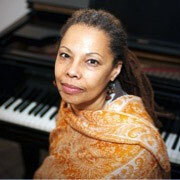 Interview: Cross, June, 2015 June Cross is a writer and documentary producer who covers the intersection of poverty, race, and politics in the United States. She has been a Professor of Journalism at Columbia University’s Graduate School of Journalism in New York since 2006. There, she founded and directed the program in Journalistic Documentary at the Columbia University Graduate School of Journalism. At the time of this interview, Cross had just finished her Emmy-nominated documentary Wihemina’s War which follows a Southern grandmother who struggles to help her granddaughter survive the health risks and social stigma of living with HIV in South Carolina. She has been a fellow at Columbia’s Institute for Research in Afro-American Studies, at Carnegie-Mellon University’s School of Urban and Public Affairs, and the W.E.B. DuBois Institute for Afro-American Studies at Harvard. In this interview, Cross speaks about her childhood growing up in Atlantic City in the 1950s. She then speaks about her painful College experience and the impact the women in her life had on Cross’s goals and sense of self. The interview closes with Cross speaking about her experience in journalism, her experience as a professor, and advice for women who plan to have careers in media.
Interview: Cross, June, 2015 June Cross is a writer and documentary producer who covers the intersection of poverty, race, and politics in the United States. She has been a Professor of Journalism at Columbia University’s Graduate School of Journalism in New York since 2006. There, she founded and directed the program in Journalistic Documentary at the Columbia University Graduate School of Journalism. At the time of this interview, Cross had just finished her Emmy-nominated documentary Wihemina’s War which follows a Southern grandmother who struggles to help her granddaughter survive the health risks and social stigma of living with HIV in South Carolina. She has been a fellow at Columbia’s Institute for Research in Afro-American Studies, at Carnegie-Mellon University’s School of Urban and Public Affairs, and the W.E.B. DuBois Institute for Afro-American Studies at Harvard. In this interview, Cross speaks about her childhood growing up in Atlantic City in the 1950s. She then speaks about her painful College experience and the impact the women in her life had on Cross’s goals and sense of self. The interview closes with Cross speaking about her experience in journalism, her experience as a professor, and advice for women who plan to have careers in media. -
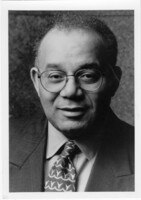 Interview: Curvin, Robert, 1991 Robert Curvin, a retired U.S Army 1st Lieutenant, completed his undergraduate degree at Rutgers-Newark in 1960. He later went on to obtain a master's degree at Rutgers University School of Social Work and a Ph.D. in political science at Princeton University in 1975. At Rutgers-Newark, Curvin served as an Adjunct Professor in the political science department and served as a faculty advisor to the Black Organization of Students (BOS).
Interview: Curvin, Robert, 1991 Robert Curvin, a retired U.S Army 1st Lieutenant, completed his undergraduate degree at Rutgers-Newark in 1960. He later went on to obtain a master's degree at Rutgers University School of Social Work and a Ph.D. in political science at Princeton University in 1975. At Rutgers-Newark, Curvin served as an Adjunct Professor in the political science department and served as a faculty advisor to the Black Organization of Students (BOS). -
Interview: Davis, Betty, 2016Betty Davis was born on April 17, 1944 in Washington, D.C. She grew up in Jersey City and Orange, graduating from Orange High School in 1962. From 1962 to 1966, Betty Davis attended Douglass College and majored in political science. She was active in the local NAACP group. In the interview, she describes her years at Douglass, including her experiences of being an African American student at Rutgers University. After graduating in 1966, Betty Davis joined the Peace Corps and served in Nigeria. She settled in Toronto, Canada and has spent her career working in computer programming.
-
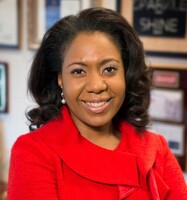 Interview: Davis, Michellene, 2017 Michellene Davis, Esq. is the President and CEO of National Medical Fellowships and former Executive Vice President and Chief Corporate Affairs Officer at Robert Wood Johnson (RWJ) Barnabas Health. Davis is an Honors graduate of Seton Hall University and holds a Juris Doctorate from Seton Hall School of Law. She also received an Executive Education Certificate in Corporate Social Responsibility from the Harvard Business School and a Wharton Executive Education Certificate in Social Impact Strategy. Michellene Davis began her legal career as a trial litigator. She also served as Chief Policy Counsel to a former New Jersey Governor, where she was the first African American to serve in this position. Davis was the first African American and only the second women to serve as Acting New Jersey State Treasurer. Ms. Davis was the youngest person in state history to serve as Executive Director of the New Jersey Lottery and served as a senior policy advisor in the New Jersey Department of Health and Senior Services. While Acting State Treasurer of New Jersey, she founded the New Jersey Department of the Treasury's Office of Supplier Diversity and Division of Minority and Women-Owned Businesses. At Rutgers Davis served on the Institute for Women's Leadership's advisory board. In this interview Ms. Davis describes her childhood growing up in Camden, New Jersey, as well as the impact her father had on her life. She speaks about her transitions between the different professions she has had, her experiences as a woman leader, and the self doubt she has faced in various professions.
Interview: Davis, Michellene, 2017 Michellene Davis, Esq. is the President and CEO of National Medical Fellowships and former Executive Vice President and Chief Corporate Affairs Officer at Robert Wood Johnson (RWJ) Barnabas Health. Davis is an Honors graduate of Seton Hall University and holds a Juris Doctorate from Seton Hall School of Law. She also received an Executive Education Certificate in Corporate Social Responsibility from the Harvard Business School and a Wharton Executive Education Certificate in Social Impact Strategy. Michellene Davis began her legal career as a trial litigator. She also served as Chief Policy Counsel to a former New Jersey Governor, where she was the first African American to serve in this position. Davis was the first African American and only the second women to serve as Acting New Jersey State Treasurer. Ms. Davis was the youngest person in state history to serve as Executive Director of the New Jersey Lottery and served as a senior policy advisor in the New Jersey Department of Health and Senior Services. While Acting State Treasurer of New Jersey, she founded the New Jersey Department of the Treasury's Office of Supplier Diversity and Division of Minority and Women-Owned Businesses. At Rutgers Davis served on the Institute for Women's Leadership's advisory board. In this interview Ms. Davis describes her childhood growing up in Camden, New Jersey, as well as the impact her father had on her life. She speaks about her transitions between the different professions she has had, her experiences as a woman leader, and the self doubt she has faced in various professions. -
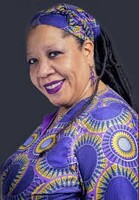 Interview: Diallo, Dazon Dixon, 2013 Dázon Dixon Diallo is a recognized visionary and advocate in the struggle for human rights, sexual and reproductive justice, especially in the fight against HIV, gender-based violence, and womxn's economic justice. Dázon is the Founder and President of SisterLove, and she is a Co-Founder and Principal in the Public Affairs & Communications firm, 14th Strategies. She is a proud member of In Our Own Voice: National Black Women’s Reproductive Justice Agenda Partnership, where she advocates for sexual and reproductive health, rights, and justice in public health and prevention policies and programs. She is a member of several bodies of influence including the Women-At-Risk Subcommittee and the Scientific Advisory Group of the HIV Prevention Trials Network, UNFPA Global Advisory Council, and a founding member of SisterSong Reproductive Justice Collective. Diallo serves on the IAPAC-Lancet HIV Commission on the Future of Urban HIV Response. She is the creator and convener of the Prevention Options for Womxn Advocacy & Research (POWAR) Partnership and WomxnNOW! Institute for SRHRJ for Girls & Womxn of African Descent worldwide. Dr.Diallo holds a master’s degree in public health from the University of Alabama at Birmingham (C’97) and both a bachelor’s degree and an honorary Doctorate of Humane Letters from Spelman College (C’86, C'2012). At Rutgers University Dr. Diallo served as the Blanche, Edith, and Irving Laurie Chair in Women’s Studies at Douglass Residential College. In this interview, Dr. Diallo speaks about her childhood in Georgia including the role models that helped shape her life. She also speaks about her college and career experiences, starting her nonprofit SisterLove, and the lack of diverse narratives that need to be discussed in the conversations surrounding HIV/AIDS.
Interview: Diallo, Dazon Dixon, 2013 Dázon Dixon Diallo is a recognized visionary and advocate in the struggle for human rights, sexual and reproductive justice, especially in the fight against HIV, gender-based violence, and womxn's economic justice. Dázon is the Founder and President of SisterLove, and she is a Co-Founder and Principal in the Public Affairs & Communications firm, 14th Strategies. She is a proud member of In Our Own Voice: National Black Women’s Reproductive Justice Agenda Partnership, where she advocates for sexual and reproductive health, rights, and justice in public health and prevention policies and programs. She is a member of several bodies of influence including the Women-At-Risk Subcommittee and the Scientific Advisory Group of the HIV Prevention Trials Network, UNFPA Global Advisory Council, and a founding member of SisterSong Reproductive Justice Collective. Diallo serves on the IAPAC-Lancet HIV Commission on the Future of Urban HIV Response. She is the creator and convener of the Prevention Options for Womxn Advocacy & Research (POWAR) Partnership and WomxnNOW! Institute for SRHRJ for Girls & Womxn of African Descent worldwide. Dr.Diallo holds a master’s degree in public health from the University of Alabama at Birmingham (C’97) and both a bachelor’s degree and an honorary Doctorate of Humane Letters from Spelman College (C’86, C'2012). At Rutgers University Dr. Diallo served as the Blanche, Edith, and Irving Laurie Chair in Women’s Studies at Douglass Residential College. In this interview, Dr. Diallo speaks about her childhood in Georgia including the role models that helped shape her life. She also speaks about her college and career experiences, starting her nonprofit SisterLove, and the lack of diverse narratives that need to be discussed in the conversations surrounding HIV/AIDS. -
 Interview: Donaldson, Vickie, 1991 Vickie Donaldson was the most prominent woman in the Black Organization of Students (BOS) and played an instrumental role in the organizaing activities surrounding the 1969 takeover of Conklin Hall. She grew up in Florida and moved with her mother in Newark in 1967. At Rutgers, she joined the Congress of Racial Equality (CORE) and the campus NAACP chapter before gravitating to the BOS. She graduated from Rutgers-Newark College of Art and Sciences (NCAS) in 1972 with a degree in black studies and sociology. In 1974 she went on to obtain a graduate degree in political theory. She received her law degree from Rutgers in 1982. Since then, Vickie has served as the General Counsel to the Board of Education in Newark, as the town prosecutor in Orange, New Jersey, and is now practicing law in Newark.
Interview: Donaldson, Vickie, 1991 Vickie Donaldson was the most prominent woman in the Black Organization of Students (BOS) and played an instrumental role in the organizaing activities surrounding the 1969 takeover of Conklin Hall. She grew up in Florida and moved with her mother in Newark in 1967. At Rutgers, she joined the Congress of Racial Equality (CORE) and the campus NAACP chapter before gravitating to the BOS. She graduated from Rutgers-Newark College of Art and Sciences (NCAS) in 1972 with a degree in black studies and sociology. In 1974 she went on to obtain a graduate degree in political theory. She received her law degree from Rutgers in 1982. Since then, Vickie has served as the General Counsel to the Board of Education in Newark, as the town prosecutor in Orange, New Jersey, and is now practicing law in Newark. -
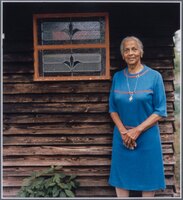 Interview: Edwards, Lena Frances, 1982 Lena Frances Edwards, M.D., (1900-1986) was an African American obstetrician and gynecologist who received the Presidential Medal of Freedom for her service in 1964. Dr. Edwards graduated from Howard University College of Medicine in 1924. For most of her 59 years of professional life, she practiced medicine in Jersey City, New Jersey, both in private practice and on the Margaret Hague Maternity Hospital staff. During her years in Jersey City, Dr. Edwards started a chapter of College Women National, the Jersey City College Women, an organization that raised money to give tuition to women who wanted to earn an education. Dr. Edwards taught at Howard University from 1954 to 1960, following in the footsteps of her father who taught at Howard University School of Dentistry. After her time at Howard, she began an endowment scholarship fund for Black women from poor backgrounds. Dr. Edwards was interviewed as part of the Medical History Society of New Jersey-Oral History Program's project "The Health Professions in New Jersey During the Great Depression, 1929-1939." The interview was conducted on December 7, 1982, at the Jewish Hospital, Jersey City, by Linda Holmes, who was a professor at UMDNJ-School of Health-Related Professions. The interview focuses on Dr. Edwards' general and obstetric practice during the 1920s and 1930s largely centered on the African American, immigrant, and blue-collar populations. The conversation also addresses her philanthropic efforts throughout her life. In addition to this oral history interview housed at Rutgers, researchers interested in Dr. Edwards's life and work in New Jersey are also encouraged to consult the oral history recordings and transcripts on file at Harvard University's Schlesinger Library, where Dr. Edwards was interviewed in 1977 as part of the Black Women Oral History Project. The Schlesinger Library has digitized the transcripts and audio recordings from that project, and they can be found on the library's website. Additionally, a biographical book about Dr. Edwards was published in 1979, titled Medicine, Motherhood and Mercy: The Story of a Black Woman Doctor, written by Sister M. Anthony Scally.
Interview: Edwards, Lena Frances, 1982 Lena Frances Edwards, M.D., (1900-1986) was an African American obstetrician and gynecologist who received the Presidential Medal of Freedom for her service in 1964. Dr. Edwards graduated from Howard University College of Medicine in 1924. For most of her 59 years of professional life, she practiced medicine in Jersey City, New Jersey, both in private practice and on the Margaret Hague Maternity Hospital staff. During her years in Jersey City, Dr. Edwards started a chapter of College Women National, the Jersey City College Women, an organization that raised money to give tuition to women who wanted to earn an education. Dr. Edwards taught at Howard University from 1954 to 1960, following in the footsteps of her father who taught at Howard University School of Dentistry. After her time at Howard, she began an endowment scholarship fund for Black women from poor backgrounds. Dr. Edwards was interviewed as part of the Medical History Society of New Jersey-Oral History Program's project "The Health Professions in New Jersey During the Great Depression, 1929-1939." The interview was conducted on December 7, 1982, at the Jewish Hospital, Jersey City, by Linda Holmes, who was a professor at UMDNJ-School of Health-Related Professions. The interview focuses on Dr. Edwards' general and obstetric practice during the 1920s and 1930s largely centered on the African American, immigrant, and blue-collar populations. The conversation also addresses her philanthropic efforts throughout her life. In addition to this oral history interview housed at Rutgers, researchers interested in Dr. Edwards's life and work in New Jersey are also encouraged to consult the oral history recordings and transcripts on file at Harvard University's Schlesinger Library, where Dr. Edwards was interviewed in 1977 as part of the Black Women Oral History Project. The Schlesinger Library has digitized the transcripts and audio recordings from that project, and they can be found on the library's website. Additionally, a biographical book about Dr. Edwards was published in 1979, titled Medicine, Motherhood and Mercy: The Story of a Black Woman Doctor, written by Sister M. Anthony Scally. -
 Interview: Epps, C. Roy, 2012 C. Roy Epps was interviewed as part of the City of New Brunswick Redevelopment Oral Histories project at the Edward J. Bloustein School of Planning and Public Policy circa 2012 (the exact date of the interview is unknown). This research project spanned from 2009 to 2016 and resulted in the publication of the book New Brunswick, New Jersey: The Decline and Revitalization of Urban America (Rutgers University Press, 2016). The video of Mr. Epps's interview and the accompanying transcript are available in digital format. Roy Epps grew up in the South Bronx and attended Wilberforce University in Ohio. After serving in the Army, he and his wife settled in New Brunswick, and he worked at Colgate-Palmolive in Piscataway. Following the riots in the summer of 1967, Epps changed his career focus and began as social worker at the Urban League. In 1970, Epps became the president and chief executive officer of the Urban League. During the early phases of the redevelopment process, Epps and the Urban League worked with the Housing Authority and city government to represent the interests of the community. Epps discusses his relationship with Richard Sellars of Johnson & Johnson and how they strategized about development models. They settled on the Hartford model with modifications, such as the inclusion of minorities and women on the board of the New Brunswick Development Corporation (Devco) and that Devco and New Brunswick Tomorrow (NBT) work together. In his role as chairman of the Housing Committee at Devco, Epps explores his involvement with residential projects and the development conflict that existed between the downtown area and neighborhoods. Epps says that Rutgers remained isolated, although certain figures were active in the community. Other topics addressed include the involvement of the Middlesex County government, Hiram Market, gentrification, the Cultural Center, financing various projects and NBT’s annual survey.
Interview: Epps, C. Roy, 2012 C. Roy Epps was interviewed as part of the City of New Brunswick Redevelopment Oral Histories project at the Edward J. Bloustein School of Planning and Public Policy circa 2012 (the exact date of the interview is unknown). This research project spanned from 2009 to 2016 and resulted in the publication of the book New Brunswick, New Jersey: The Decline and Revitalization of Urban America (Rutgers University Press, 2016). The video of Mr. Epps's interview and the accompanying transcript are available in digital format. Roy Epps grew up in the South Bronx and attended Wilberforce University in Ohio. After serving in the Army, he and his wife settled in New Brunswick, and he worked at Colgate-Palmolive in Piscataway. Following the riots in the summer of 1967, Epps changed his career focus and began as social worker at the Urban League. In 1970, Epps became the president and chief executive officer of the Urban League. During the early phases of the redevelopment process, Epps and the Urban League worked with the Housing Authority and city government to represent the interests of the community. Epps discusses his relationship with Richard Sellars of Johnson & Johnson and how they strategized about development models. They settled on the Hartford model with modifications, such as the inclusion of minorities and women on the board of the New Brunswick Development Corporation (Devco) and that Devco and New Brunswick Tomorrow (NBT) work together. In his role as chairman of the Housing Committee at Devco, Epps explores his involvement with residential projects and the development conflict that existed between the downtown area and neighborhoods. Epps says that Rutgers remained isolated, although certain figures were active in the community. Other topics addressed include the involvement of the Middlesex County government, Hiram Market, gentrification, the Cultural Center, financing various projects and NBT’s annual survey. -
 Interview: Fisher, Michael M., 2022 This interview was conducted by Professor Deborah Gray White for the Scarlet and Black research project. Michael M. Fisher was a star football player at Rutgers University–New Brunswick from 1974 to 1978. He is known as Mike Fisher in the annals of Rutgers athletics. He was born in New Brunswick and grew up in nearby Edison. In his interview he recalls his experience growing up in Middlesex County, New Jersey, and participating in youth sports through the Pop Warner Little Scholars program. He discusses college sports at length, including recruitment, training, travel, rivalries, and the use of college athletes' image and likeness for promotional purposes in the 1970s. During his time at Rutgers, he was part of the undefeated 1976 Scarlet Knights team and played the first college football game at the Giants Stadium at the Meadowlands. He also shares memories of the social life on campus and the African American fraternities and sororities in the 1970s.
Interview: Fisher, Michael M., 2022 This interview was conducted by Professor Deborah Gray White for the Scarlet and Black research project. Michael M. Fisher was a star football player at Rutgers University–New Brunswick from 1974 to 1978. He is known as Mike Fisher in the annals of Rutgers athletics. He was born in New Brunswick and grew up in nearby Edison. In his interview he recalls his experience growing up in Middlesex County, New Jersey, and participating in youth sports through the Pop Warner Little Scholars program. He discusses college sports at length, including recruitment, training, travel, rivalries, and the use of college athletes' image and likeness for promotional purposes in the 1970s. During his time at Rutgers, he was part of the undefeated 1976 Scarlet Knights team and played the first college football game at the Giants Stadium at the Meadowlands. He also shares memories of the social life on campus and the African American fraternities and sororities in the 1970s. -
Interview: Gaither, Cornelius, 2014Dr. Cornelius E. Gaither was born in Philadephia in 1928. He attended an all black elementary schooll in West Chester, Pennsylvania before attending an integrated high school. Gaither attended Lincoln University in 1945 and went on to Meharry Medical College in Nashville, Tennessee to earn his doctorate degree in Dental Surgery. He joined the Air Force in 1955 and spent three years an oral surgeon in Germany. Gaither retired in 1987 having served over thirty years in the Reserves.
-
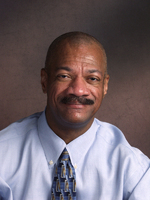 Interview: Glasker, Wayne, 2022 This interview was recorded as part of the Black Camden Oral History Project. Dr. Wayne Glasker is Emeritus Professor of History at Rutgers University–Camden. He is the author of the book Black Students in the Ivory Tower: African American Student Activism at the University of Pennsylvania, 1967-1990. He was born in 1957 in Philadelphia, Pennsylvania, to Mary Johnson and Morris Glasker. His parents were part of the Great Migration and had moved from Virginia to Pennsylvania in search of better work opportunities. In these interviews, Glasker discusses his childhood in Philadelphia and his experiences at the University of Pennsylvania from 1974 to 1994. Glasker earned his Bachelor’s degree in History and Sociology in 1980. He attended graduate school at UPenn as well, earning a PhD in History in 1994. During this time, he was active in the Black Student Union on campus, student government, and in the anti-apartheid movement. He discusses his experiences as a student activist and student government leader as well as the challenges on campus for African American students. In 1990 Glasker began teaching African American history at Rutgers–Camden. He served as director of the Africana Studies program from 1998 to 2011. He describes race relations on campus in the 1990s and student activism at Rutgers. He emphasizes the list of demands from Black student activists following the occupation of the Campus Center at Rutgers–Camden in 1969. He also describes his efforts to increase civic engagement in his classes.
Interview: Glasker, Wayne, 2022 This interview was recorded as part of the Black Camden Oral History Project. Dr. Wayne Glasker is Emeritus Professor of History at Rutgers University–Camden. He is the author of the book Black Students in the Ivory Tower: African American Student Activism at the University of Pennsylvania, 1967-1990. He was born in 1957 in Philadelphia, Pennsylvania, to Mary Johnson and Morris Glasker. His parents were part of the Great Migration and had moved from Virginia to Pennsylvania in search of better work opportunities. In these interviews, Glasker discusses his childhood in Philadelphia and his experiences at the University of Pennsylvania from 1974 to 1994. Glasker earned his Bachelor’s degree in History and Sociology in 1980. He attended graduate school at UPenn as well, earning a PhD in History in 1994. During this time, he was active in the Black Student Union on campus, student government, and in the anti-apartheid movement. He discusses his experiences as a student activist and student government leader as well as the challenges on campus for African American students. In 1990 Glasker began teaching African American history at Rutgers–Camden. He served as director of the Africana Studies program from 1998 to 2011. He describes race relations on campus in the 1990s and student activism at Rutgers. He emphasizes the list of demands from Black student activists following the occupation of the Campus Center at Rutgers–Camden in 1969. He also describes his efforts to increase civic engagement in his classes. -
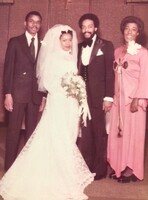 Interview: Graham, Patricia, 2015 Patricia Graham was born in Saluda, South Carolina, on March 9, 1949. She grew up in Philadelphia and then moved to New Jersey during high school. Dr. Graham graduated from West Side High School in Newark in 1966. She attended Essex County Community College and then Rutgers-Newark, before transferring to Livingston College at Rutgers-New Brunswick. During college, Dr. Graham participated in the Volunteers in Service to America (VISTA) program. Majoring in urban studies and secondary education, Dr. Graham graduated from Livingston College in 1972. She went on to earn her Master's degree in education at Antioch College and Ed.D. at the University of Massachusetts, Amherst. From 1977 to 2013, Dr. Graham served in various positions at East Stroudsburg University, where she is now a professor emeritus.
Interview: Graham, Patricia, 2015 Patricia Graham was born in Saluda, South Carolina, on March 9, 1949. She grew up in Philadelphia and then moved to New Jersey during high school. Dr. Graham graduated from West Side High School in Newark in 1966. She attended Essex County Community College and then Rutgers-Newark, before transferring to Livingston College at Rutgers-New Brunswick. During college, Dr. Graham participated in the Volunteers in Service to America (VISTA) program. Majoring in urban studies and secondary education, Dr. Graham graduated from Livingston College in 1972. She went on to earn her Master's degree in education at Antioch College and Ed.D. at the University of Massachusetts, Amherst. From 1977 to 2013, Dr. Graham served in various positions at East Stroudsburg University, where she is now a professor emeritus. -
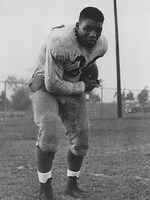 Interview: Grimsley, Harvey, 2019 Harvey Grimsley was born in Haleburg, Alabama, in 1922. His family fled the racial oppression and violence of the Jim Crow-era South and moved to New Jersey during his childhood. Grimsley attended schools in Bloomfield and then Orange, where his relative Monte Irvin also grew up. Irvin went on to play professional baseball and became a member of the Baseball Hall of Fame. Grimsley graduated from Orange High School in 1942. During World War II, Grimsley was drafted. He served overseas in Europe in the segregated U.S. Army in an all-Black transportation unit. He and his unit partook in D-Day, the Allied invasion of German-occupied Normandy on June 6, 1944, and landed on Utah Beach. In 1945-'46, Grimsley attended Biarritz American University in Europe and played on the university's integrated basketball team. After being discharged from the Army, Grimsley was recruited to play football at Rutgers, which he attended on the GI Bill. Between '46 and '49, Grimsley distinguished himself as the Scarlet Knight's leading scorer, despite never starting a game under coach Harvey Harman. After graduating in the Rutgers College Class of 1950, Grimsley spent his career working as a coach, including being a high school coach in Newark and Piscataway and working as a recruiter for Governors State University in Chicago. He was inducted into the Rutgers Athletic Hall of Fame in 1993.
Interview: Grimsley, Harvey, 2019 Harvey Grimsley was born in Haleburg, Alabama, in 1922. His family fled the racial oppression and violence of the Jim Crow-era South and moved to New Jersey during his childhood. Grimsley attended schools in Bloomfield and then Orange, where his relative Monte Irvin also grew up. Irvin went on to play professional baseball and became a member of the Baseball Hall of Fame. Grimsley graduated from Orange High School in 1942. During World War II, Grimsley was drafted. He served overseas in Europe in the segregated U.S. Army in an all-Black transportation unit. He and his unit partook in D-Day, the Allied invasion of German-occupied Normandy on June 6, 1944, and landed on Utah Beach. In 1945-'46, Grimsley attended Biarritz American University in Europe and played on the university's integrated basketball team. After being discharged from the Army, Grimsley was recruited to play football at Rutgers, which he attended on the GI Bill. Between '46 and '49, Grimsley distinguished himself as the Scarlet Knight's leading scorer, despite never starting a game under coach Harvey Harman. After graduating in the Rutgers College Class of 1950, Grimsley spent his career working as a coach, including being a high school coach in Newark and Piscataway and working as a recruiter for Governors State University in Chicago. He was inducted into the Rutgers Athletic Hall of Fame in 1993. -
 Interview: Harris, David, 2012 David Harris was interviewed as part of the City of New Brunswick Redevelopment Oral Histories project at the Edward J. Bloustein School of Planning and Public Policy circa 2012 (the exact date of the interview is unknown). This research project spanned from 2009 to 2016 and resulted in the publication of the book New Brunswick, New Jersey: The Decline and Revitalization of Urban America (Rutgers University Press, 2016). The video of Mr. Harris's interview and the accompanying transcript are available in digital format. In the early 1960s, David Harris lived in South River, near New Brunswick, and studied part time at Rutgers. Harris explains that New Brunswick, known as “Hub City,” used to be the center of African American culture in the region. In 1965, he began working in New Brunswick for the Middlesex County Economic Opportunities Corporation. Harris explores conflicts between the needs of the community and redevelopment agencies led by Johnson & Johnson, and in this context, discusses the demolition of the Memorial Homes housing project. Having served on the board of the New Brunswick Development Corporation (Devco) for a short time, Harris critiques the lack of genuine input from the public. He asserts that Devco wanted to diminish the African American presence in the business district. Consequently, the welfare office, YMCA and YWCA were removed from downtown. Harris reveals the motivations that led to building the current New Brunswick high school on the outskirts of town. He touches upon the Hyatt Hotel, Hiram Market, leaders in redevelopment such as John Lynch and John Heldrich and the roles of Rutgers, the hospitals and arts venues in urban renewal. Finally, Harris alludes to “unfinished business” and what still needs to be accomplished in the community.
Interview: Harris, David, 2012 David Harris was interviewed as part of the City of New Brunswick Redevelopment Oral Histories project at the Edward J. Bloustein School of Planning and Public Policy circa 2012 (the exact date of the interview is unknown). This research project spanned from 2009 to 2016 and resulted in the publication of the book New Brunswick, New Jersey: The Decline and Revitalization of Urban America (Rutgers University Press, 2016). The video of Mr. Harris's interview and the accompanying transcript are available in digital format. In the early 1960s, David Harris lived in South River, near New Brunswick, and studied part time at Rutgers. Harris explains that New Brunswick, known as “Hub City,” used to be the center of African American culture in the region. In 1965, he began working in New Brunswick for the Middlesex County Economic Opportunities Corporation. Harris explores conflicts between the needs of the community and redevelopment agencies led by Johnson & Johnson, and in this context, discusses the demolition of the Memorial Homes housing project. Having served on the board of the New Brunswick Development Corporation (Devco) for a short time, Harris critiques the lack of genuine input from the public. He asserts that Devco wanted to diminish the African American presence in the business district. Consequently, the welfare office, YMCA and YWCA were removed from downtown. Harris reveals the motivations that led to building the current New Brunswick high school on the outskirts of town. He touches upon the Hyatt Hotel, Hiram Market, leaders in redevelopment such as John Lynch and John Heldrich and the roles of Rutgers, the hospitals and arts venues in urban renewal. Finally, Harris alludes to “unfinished business” and what still needs to be accomplished in the community. -
Interview: Harris, Donald, 2013Donald Harris was born in New York, New York in 1940. He attended Rutgers College and graduated in 1963 with majors in English and Physical Education. At Rutgers, Harris was a member of the Air Force ROTC and also played football and lacrosse. He worked as a Civil Rights activist during his student days at Rutgers and, later, as a fieldworker for the Student Nonviolent Coordinating Committee (SNCC) in Southwest Georgia in the early 1960s. In August 1963, he was arrested in Americus, Georgia, while trying to register African-American voters. Harris and two others were charged with insurrection, a capital offense in Georgia. The case stirred support on the Rutgers campus and across New Jersey in the Fall of 1963. Harris was released in November after a federal court declared the law under which he was charged to be unconstitutional. He went on to pursue graduate work at the City University of New York, Harvard Law School, and Columbia University. He worked for Philip Morris International Management and retired as the Vice President of Public Affairs and Communications.
-
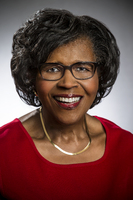 Interview: Harris, M. Wilma, 2015 M. Wilma Harris was born in 1944 in Paulsboro, New Jersey. She attended Douglass College and graduated with a history degree in the Class of 1966. She went on to earn her master's degree in Governmental Administration from the University of Pennsylvania. Harris worked at Douglass College as Counselor-in-Residence, Assistant Dean of Students and Associate Dean of Students. In 1977, Harris began working at Prudential and spent the rest of her career there, eventually becoming Vice President of Human Resources. Harris has an honorary doctorate from St. Peter's College.
Interview: Harris, M. Wilma, 2015 M. Wilma Harris was born in 1944 in Paulsboro, New Jersey. She attended Douglass College and graduated with a history degree in the Class of 1966. She went on to earn her master's degree in Governmental Administration from the University of Pennsylvania. Harris worked at Douglass College as Counselor-in-Residence, Assistant Dean of Students and Associate Dean of Students. In 1977, Harris began working at Prudential and spent the rest of her career there, eventually becoming Vice President of Human Resources. Harris has an honorary doctorate from St. Peter's College. -
Interview: Hatfield, Kent, 2012Kent Hatfield was born September 17, 1959, in Altoona, Pennsylvania. He grew up in New York City, in the Bronx, where he attended Saint Angela Merici, a Catholic elementary school. After moving to New Jersey, he attended Belleville High School. Following his graduation, he decided to pursue a career in the military, and at age eighteen, he enlisted in the U.S. Army in Newark, New Jersey, in January 1978. He completed basic training and advanced training at Fort Gordon, Georgia. During his time in the service, he was initially sent to a post in South Korea called Camp Castle from 1978-1979, before being transferred to Fort Hood in Texas. He was honorably discharged in August 1987. Afterwards, he decided to join the Reserves, where he was active for four years as part of the 78th Division in Morristown, New Jersey. Hatfield was a longtime patron and employee of Manny’s Den, also known as The Den, in New Brunswick, New Jersey.
-
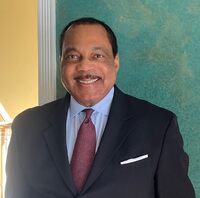 Interview: Hubbard, Bruce, 2016 Bruce Hubbard was born on February 7, 1948, in Chattanooga, Tennessee. He graduated from Rutgers College in 1969 and from Harvard Law School in 1972. Mr. Hubbard was a writer and photographer for the Targum, a student representative to the Board of Governors, and a member of the Chi Psi fraternity. Today, Mr. Hubbard is the Principal of Bruce A. Hubbard, P.C., an independent law firm located in New York City.
Interview: Hubbard, Bruce, 2016 Bruce Hubbard was born on February 7, 1948, in Chattanooga, Tennessee. He graduated from Rutgers College in 1969 and from Harvard Law School in 1972. Mr. Hubbard was a writer and photographer for the Targum, a student representative to the Board of Governors, and a member of the Chi Psi fraternity. Today, Mr. Hubbard is the Principal of Bruce A. Hubbard, P.C., an independent law firm located in New York City. -
Interview: Hyndman, Arnold, 2016Born in Los Angeles, California, Dr. Hyndman was interested in science from a young age and was encouraged by his teachers to attend programs and assist with research, prompting a career in science and education. During his time in high school, he was able to participate in summer research programs with institutions such as the University of Southern California in their marine animal laboratory. Dr. Hyndman participated in a school walkout after the assassination of Dr. Martin Luther King, Jr. After graduating high school in 1970, Dr. Hyndman went on to attend Princeton University, majoring in Biology. Building on the work of his bachelor’s degree, Dr. Hyndman returned to California to attend graduate school at the University of California, Los Angeles from 1974 to 1978 and he earned his Ph.D. in Philosophy and Neuroscience. During his graduate work, Dr. Hyndman was actively involved in recruiting more students of color to the biology department. He also made quick use of the teaching credentials he obtained from Princeton, working, over the summers, with an Upward Bound program, bringing inner city young people to college and university campuses and preparing them for college life. Dr. Hyndman took his first post-doctoral assignment at Ohio State University in the medical school working on research, before finding himself presented with offers for positions at both the University of California (UCSD), San Diego and at Livingston College. Dr. Hyndman worked out a compromise wherein he asked Rutgers to hold the position for a year, while he went to UCSD to complete a second post-doctoral program. While working at UCSD, Dr. Hyndman and his collaborators developed a cell culture technique and were among the early describers of the natural cell division and replication of post-mitotic cells. Dr. Hyndman’s work helped to illustrate that there are cells in our brains that continue to divide. In 1981, Dr. Hyndman became assistant professor in the Department of Biological Science at Rutgers University, during which time the faculty reorganized into the Faculty of Arts and Sciences (FAS). He served as the founding director of what was originally called the Minority Advancement Program and held this position until becoming associate provost in 1990. Dr. Hyndman established mechanisms to prime the coordination and funding for campus-based retention programs and provided administrative guidance for programs such as the establishment of the university’s Latino Cultural Center and the Asian Cultural Center. Dr. Hyndman then served as the Dean of Livingston College from 1993 until 2007. Since 2001, he has been the director of the Organizational Leadership Program. From 2001 to 2008, he also served as the director of the Criminal Justice Program. Dr. Hyndman is a professor in the Department of Cell Biology and Neuroscience. Dr. Hyndman served on the New Jersey State Board of Education, in addition to consulting for organizations such as SLS and Janssen Pharmaceuticals. He has obtained numerous credentials, including being an ordained Christian Minister, a New Jersey Teaching Credential, and membership in such organizations as the International Leadership Society and the Center for Bioethics and Human Dignity. He also serves as Chair of the Elder Board at Abundant Life Community Church, a position he has held since 2012. Dr. Hyndman is Secretary and Treasurer on the Executive Board of the Warren County National Alliance on Mental Illness.
-
Interview: Jackson, Linda, 2015Linda Jackson was born in New York, New York in 1953. She attended Douglass College and graduated in 1974 with degrees in Theater Arts and English. She has had a long career in theather and opera.
-
Interview: Jackson, Michael, 2015Michael T. Jackson was born in Washington, DC in 1949. He studied African Studies at Rutgers University and graduated in 1971. Jackson also earned his Masters of Divinity at the University of the South's School of Theology. He worked in social service and administration and retired as the Executive Director of the St. Vincent's Episcopal House in Galveston, Texas in 2014.
-
Interview: Jackson, Peter, 1991Peter Jackson graduated from Rutgers-Newark in 1969 and later joined the faculty in the Master of Public Administration program. He was a member of the Black Organization of Students (BOS) and was instrumental in negotiations with the university administration and in the group's takeover of Conklin Hall in February 1969.
-
Interview: Jones-Hicks, Delora, 1991Delora Jones-Hicks was secretary for the Business and Industrial Coordinating Council before joining Rutgers-Newark's Office of Public Information in 1968. During her time at the university, she wrote press releases, developed relationships with news organizations, planned events, and was in charge of public relations with the surrounding community. She also served as chair of the Organization of Black Faculty and Staff.
-
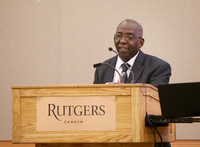 Interview: Jones, Roy L., 2021 Roy L. Jones was born in Fort Lauderdale, Florida in 1946. He spent his early years in segregated Fort Lauderdale. In 1957-'58, he moved to Atlantic City, along with his mother and four brothers, following an aunt who had moved there in the 1940s. He shares his experiences growing up in the Black community in Atlantic City. After attending two HBCUs, he went to University College at Rutgers-Camden and then enrolled in the Rutgers Camden College of Arts and Sciences (CCAS), graduating in 1970. At CCAS, he was active in the Black Student Unity Movement (BSUM). In the interview, he discusses the demands of the BSUM for greater inclusivity and diversity at the University and the takeover of the College Center on February 26-27, 1969. He helped found the Black Cooperative Association, or Black Co-op, in Camden, which provided food, housing, childcare, healthcare and engagement in the arts. He was also a part of the Cooper-Grant Neighborhood Association, which opposed gentrification in Camden. In the second interview, Jones discusses his experiences as an EOF administrator at Rutgers-Camden and his involvement in the Black student protest movement. He also shares remembrances of the Camden uprisings. His work in environmental justice began in 1971 with opposition to building an incinerator in Camden and has continued through involvement in organizations such as the South Jersey Environmental Justice Alliance and the National Institute for Healthy Human Spaces. He delves into his work in addressing water safety issues in Camden and in the city's public schools. He became a Senior Environmental Fellow in 2008 and has authored several publications, including Toxic Schools in New Jersey. This interview was recorded as part of the Black Camden Oral History Project.
Interview: Jones, Roy L., 2021 Roy L. Jones was born in Fort Lauderdale, Florida in 1946. He spent his early years in segregated Fort Lauderdale. In 1957-'58, he moved to Atlantic City, along with his mother and four brothers, following an aunt who had moved there in the 1940s. He shares his experiences growing up in the Black community in Atlantic City. After attending two HBCUs, he went to University College at Rutgers-Camden and then enrolled in the Rutgers Camden College of Arts and Sciences (CCAS), graduating in 1970. At CCAS, he was active in the Black Student Unity Movement (BSUM). In the interview, he discusses the demands of the BSUM for greater inclusivity and diversity at the University and the takeover of the College Center on February 26-27, 1969. He helped found the Black Cooperative Association, or Black Co-op, in Camden, which provided food, housing, childcare, healthcare and engagement in the arts. He was also a part of the Cooper-Grant Neighborhood Association, which opposed gentrification in Camden. In the second interview, Jones discusses his experiences as an EOF administrator at Rutgers-Camden and his involvement in the Black student protest movement. He also shares remembrances of the Camden uprisings. His work in environmental justice began in 1971 with opposition to building an incinerator in Camden and has continued through involvement in organizations such as the South Jersey Environmental Justice Alliance and the National Institute for Healthy Human Spaces. He delves into his work in addressing water safety issues in Camden and in the city's public schools. He became a Senior Environmental Fellow in 2008 and has authored several publications, including Toxic Schools in New Jersey. This interview was recorded as part of the Black Camden Oral History Project. -
 Interview: Khan, Ricardo, 2012 Ricardo Khan was interviewed as part of the City of New Brunswick Redevelopment Oral Histories project at the Edward J. Bloustein School of Planning and Public Policy circa 2012 (the exact date of the interview is unknown). This research project spanned from 2009 to 2016 and resulted in the publication of the book New Brunswick, New Jersey: The Decline and Revitalization of Urban America (Rutgers University Press, 2016). The video of Mr. Khan's interview and the accompanying transcript are available in digital format. As co-founder of the Crossroads Theater in New Brunswick, Ricardo Khan’s interview offers insight into the theater scene during redevelopment. After finishing his MFA at Rutgers, Khan became involved in the Comprehensive Employment and Training Act program and then a similar program that allowed him and his partner Lee Richardson to found what eventually became called Crossroads. The theater was originally in Hiram Market, explains Khan, and it was an integral part of the diverse community there. Khan discusses the evolution of Crossroads and how key figures promoted it, culminating in the theater moving to its current location on Livingston Avenue. He discusses the formation of the Cultural Center and the major people involved in that effort. In 1999, Crossroads won a Tony Award for best regional theater. He discusses the positive impact that redevelopment had on the arts but points out the effects on neighborhoods that were razed.
Interview: Khan, Ricardo, 2012 Ricardo Khan was interviewed as part of the City of New Brunswick Redevelopment Oral Histories project at the Edward J. Bloustein School of Planning and Public Policy circa 2012 (the exact date of the interview is unknown). This research project spanned from 2009 to 2016 and resulted in the publication of the book New Brunswick, New Jersey: The Decline and Revitalization of Urban America (Rutgers University Press, 2016). The video of Mr. Khan's interview and the accompanying transcript are available in digital format. As co-founder of the Crossroads Theater in New Brunswick, Ricardo Khan’s interview offers insight into the theater scene during redevelopment. After finishing his MFA at Rutgers, Khan became involved in the Comprehensive Employment and Training Act program and then a similar program that allowed him and his partner Lee Richardson to found what eventually became called Crossroads. The theater was originally in Hiram Market, explains Khan, and it was an integral part of the diverse community there. Khan discusses the evolution of Crossroads and how key figures promoted it, culminating in the theater moving to its current location on Livingston Avenue. He discusses the formation of the Cultural Center and the major people involved in that effort. In 1999, Crossroads won a Tony Award for best regional theater. He discusses the positive impact that redevelopment had on the arts but points out the effects on neighborhoods that were razed. -
Interview: Lawrence, Lincoln, 1991Lincoln Lawrence grew up in Jersey City and received his bachelor of science from Jersey City State College and a master's degree in school administration and supervision from Seton Hall. From 1963 to 1967 he was a science teacher and cultural coordinator at West Kinney Junior High School in Newark. He later worked as supervisor of math and science teachers and director of School Audio-Visual Materials Center for the city of Newark and instructor of manpower training at the Montgomery School in Newark. In 1968 he became assistant director of admissions for the Rutgers-Newark campus, and from 1970 to 1987 he served as Assistant Dean of the Faculty of Arts and Sciences of Newark.
-
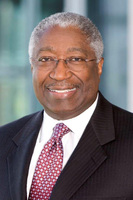 Interview: Martin, Joshua W. III, 2022 This interview was recorded as part of the Black Camden Oral History Project. Joshua W. Martin III was born to Bernice B. and Joshua W. Martin in Columbia, South Carolina, in 1944. In this interview, Martin describes his childhood in Columbia, his formative experience working at his father’s barbershop, and his fascination with science. He discusses his decision to go to Case Institute of Technology in Cleveland, Ohio, and his experiences there from 1962 to 1966. Following his graduation, he began working for DuPont Company working in science and technology. He discusses his experiences as the first Black employee at the professional level at his facility and his projects there, including developing a patent for DuPont. During this period, he took graduate courses in Materials Engineering at Drexel University between 1968 and 1971. He left DuPont and Drexel and began attending Rutgers Law School in Camden in 1971. He discusses his time at the law school, particularly his work with the local organization Black People’s Unity Movement (BPUM) and his participation in their economic development work, including helping to start a Burger King near the Rutgers campus in Camden. He also talks about his relationship with the community leaders in the BPUM. After his graduation in 1974, Martin went to work for Hercules Incorporated as a patent attorney. He also served on the Board of the Better Business Bureau and the Delaware Public Service Commission. In 1982, Martin became a Superior Court judge for the State of Delaware, and he shares some of his experiences and perspectives on the justice system in the interview. Following seven years of service as a judge, Martin became General Counsel for Bell Atlantic Delaware (later Verizon Delaware) in 1990 and was made President and CEO in 1996. He ended his time with Verizon in 2005, after which he joined the law firm Potter Anderson & Corroon. Additionally, he discusses his work overseeing the delivery of health care and mental health services in several Delaware Department of Correction facilities between 2006 and 2010.
Interview: Martin, Joshua W. III, 2022 This interview was recorded as part of the Black Camden Oral History Project. Joshua W. Martin III was born to Bernice B. and Joshua W. Martin in Columbia, South Carolina, in 1944. In this interview, Martin describes his childhood in Columbia, his formative experience working at his father’s barbershop, and his fascination with science. He discusses his decision to go to Case Institute of Technology in Cleveland, Ohio, and his experiences there from 1962 to 1966. Following his graduation, he began working for DuPont Company working in science and technology. He discusses his experiences as the first Black employee at the professional level at his facility and his projects there, including developing a patent for DuPont. During this period, he took graduate courses in Materials Engineering at Drexel University between 1968 and 1971. He left DuPont and Drexel and began attending Rutgers Law School in Camden in 1971. He discusses his time at the law school, particularly his work with the local organization Black People’s Unity Movement (BPUM) and his participation in their economic development work, including helping to start a Burger King near the Rutgers campus in Camden. He also talks about his relationship with the community leaders in the BPUM. After his graduation in 1974, Martin went to work for Hercules Incorporated as a patent attorney. He also served on the Board of the Better Business Bureau and the Delaware Public Service Commission. In 1982, Martin became a Superior Court judge for the State of Delaware, and he shares some of his experiences and perspectives on the justice system in the interview. Following seven years of service as a judge, Martin became General Counsel for Bell Atlantic Delaware (later Verizon Delaware) in 1990 and was made President and CEO in 1996. He ended his time with Verizon in 2005, after which he joined the law firm Potter Anderson & Corroon. Additionally, he discusses his work overseeing the delivery of health care and mental health services in several Delaware Department of Correction facilities between 2006 and 2010. -
Interview: McLeod, Bruce, 2011Bruce McLeod was born in Jamaica and immigrated to the United States as a teenager. McLeod then joined the US Army, where he served as a medic during the Vietnam War.
-
Interview: Mitchell, Bryant, 2015Part 1 - Bryant Mitchell was born on July 13, 1947, in Hampton, Virginia. An art history major, he graduated from Rutgers College in 1969. While at Rutgers, he was named most valuable player for the 1968 football season. He is a 1992 Rutgers Football Hall of Fame inductee. During Mr. Mitchell's first interview, he recalls growing up in Virginia, an early exposure to Civil Rights activism by way of his father, Henry Bryant Mitchell, and his time at Rutgers. He joined the 25th Infantry Division in 1969. Part 2 - Mr. Mitchell served in the 25th Infantry Division from September 1969 to September 1971 as a combat MP. He was stationed at Cu Chi before being assigned to Dau Tieng. After leaving the military, Mr. Mitchell entered the University of Virginia Law School and graduated in 1975. Currently, Mr. Mitchell works in real estate, owning his own brokerage in the Washington, D.C. metropolitan area.
-
 Interview: Morrison Rodriguez, Barbara, 2015 Dr. Barbara Morrison-Rodriguez was born in Washington, DC in 1947. She graduated from McKinley Technical High School in Washington, DC, and went on to Douglass College. Barbara graduated with a degree in Sociology. In 1979, she earned a Master's Degree in Social Welfare Research from Columbia University's School of Social Welfare and later, a PhD in Social Welfare Research and Evaluation.
Interview: Morrison Rodriguez, Barbara, 2015 Dr. Barbara Morrison-Rodriguez was born in Washington, DC in 1947. She graduated from McKinley Technical High School in Washington, DC, and went on to Douglass College. Barbara graduated with a degree in Sociology. In 1979, she earned a Master's Degree in Social Welfare Research from Columbia University's School of Social Welfare and later, a PhD in Social Welfare Research and Evaluation. -
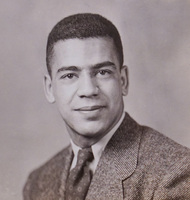 Interview: Moss, Simeon, 1997 Simeon Moss graduated from Rutgers College in 1941. Mr. Moss served as an infantry officer in the 92nd Infantry Division during World War II. He had a long career in educational leadership and administration.
Interview: Moss, Simeon, 1997 Simeon Moss graduated from Rutgers College in 1941. Mr. Moss served as an infantry officer in the 92nd Infantry Division during World War II. He had a long career in educational leadership and administration. -
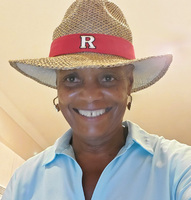 Interview: Petway, Sandra M., 2022 This interview was conducted by Professor Deborah Gray White for the Scarlet and Black research project. Sandra Petway, known to her friends and fellow athletes as Sandee, started the women’s track and field program at Rutgers–New Brunswick in 1974, a year after joining the university as a physical education instructor. She was the first Black head coach at Rutgers and led the track team until 1980. In 2022, she was inducted into the Rutgers Athletics Hall of Fame in recognition of her contribution to women’s sports and the many successes that her track team achieved during her tenure. Petway was born in 1950 in Plainfield, NJ, and grew up in Vineland in South Jersey. She attended Trenton State College (now The College of New Jersey), where she developed her leadership experience by creating a women’s varsity track team as an undergraduate student. In her interview, she discusses her memories of Rutgers athletics in the 1970s and the changes that Title IX brought to the university. She also discusses her family history and the impact that her mother, teacher and principal Pauline Petway, had on the community in Vineland.
Interview: Petway, Sandra M., 2022 This interview was conducted by Professor Deborah Gray White for the Scarlet and Black research project. Sandra Petway, known to her friends and fellow athletes as Sandee, started the women’s track and field program at Rutgers–New Brunswick in 1974, a year after joining the university as a physical education instructor. She was the first Black head coach at Rutgers and led the track team until 1980. In 2022, she was inducted into the Rutgers Athletics Hall of Fame in recognition of her contribution to women’s sports and the many successes that her track team achieved during her tenure. Petway was born in 1950 in Plainfield, NJ, and grew up in Vineland in South Jersey. She attended Trenton State College (now The College of New Jersey), where she developed her leadership experience by creating a women’s varsity track team as an undergraduate student. In her interview, she discusses her memories of Rutgers athletics in the 1970s and the changes that Title IX brought to the university. She also discusses her family history and the impact that her mother, teacher and principal Pauline Petway, had on the community in Vineland. -
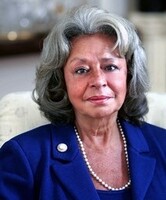 Interview: Pinn, Vivan, 2018 Vivian Pinn, MD, was the first full-time Director of the Office of Research on Women’s Health (ORWH) from 1991-2011 at the National Institutes of Health (NIH) and NIH Associate Director for Research on Women’s Health. In 1967, Dr. Pinn graduated from the University of Virginia School of Medicine as the only African American woman in her class. Dr. Pinn was a Professor and Chair of the Department of Pathology at Howard University College of Medicine, Associate Professor of Pathology and Assistant Dean of Student Affairs at Tufts University School of Medicine, and Teaching Fellow at Harvard Medical School. In this interview Dr. Pinn discusses impressions of the women in her life and how this influenced the woman she was to become. She then speaks about the moments in her life that impacted her career path in medicine that coincided with the struggles of being black woman in medicine. She closes this interview with advice to women graduating from college and entering the workforce.
Interview: Pinn, Vivan, 2018 Vivian Pinn, MD, was the first full-time Director of the Office of Research on Women’s Health (ORWH) from 1991-2011 at the National Institutes of Health (NIH) and NIH Associate Director for Research on Women’s Health. In 1967, Dr. Pinn graduated from the University of Virginia School of Medicine as the only African American woman in her class. Dr. Pinn was a Professor and Chair of the Department of Pathology at Howard University College of Medicine, Associate Professor of Pathology and Assistant Dean of Student Affairs at Tufts University School of Medicine, and Teaching Fellow at Harvard Medical School. In this interview Dr. Pinn discusses impressions of the women in her life and how this influenced the woman she was to become. She then speaks about the moments in her life that impacted her career path in medicine that coincided with the struggles of being black woman in medicine. She closes this interview with advice to women graduating from college and entering the workforce. -
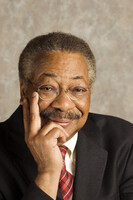 Interview: Price, Clement A., 1991 Clement A. Price was born in Washington, D.C., in 1945 and attended the D.C. public schools. He received his bachelor's and master's degrees from University of Bridgeport. After a year teaching African American history at Essex County College, Price joined the faculty at Rutgers-Newark in 1969, where he was initially hired as a part-time instructor. Soon after his appointment in Newark, he enrolled in the history Ph.D. program at Rutgers-New Brunswick, which he completed in 1975. Dr. Price taught at Rutgers-Newark for 45 years and established himself as one of the university's most esteemed faculty members. He is the recipient of numerous awards and honors, including serving as chair of President Obama's transition team for the National Endowment for the Humanities and vice chair of the Advisory Council on Historic Preservation. He has played leadership roles with many organizations in New Jersey, including the New Jersey State Council on the Arts, the Fund for New Jersey, the Newark Public Schools, the Newark Black Film Festival, the Newark Public Library, the Newark Education Trust, and the Save Ellis Island Foundation. Over the years, Dr. Price has published widely in African American History, Urban American History, and American Cultural Policy. He continued teaching history at Rutgers-Newark as Board of Governors Distinguished Service Professor until his death in 2014. The Clement A. Price Institute on Ethnicity, Culture and the Modern Experience at Rutgers-Newark was named in his honor.
Interview: Price, Clement A., 1991 Clement A. Price was born in Washington, D.C., in 1945 and attended the D.C. public schools. He received his bachelor's and master's degrees from University of Bridgeport. After a year teaching African American history at Essex County College, Price joined the faculty at Rutgers-Newark in 1969, where he was initially hired as a part-time instructor. Soon after his appointment in Newark, he enrolled in the history Ph.D. program at Rutgers-New Brunswick, which he completed in 1975. Dr. Price taught at Rutgers-Newark for 45 years and established himself as one of the university's most esteemed faculty members. He is the recipient of numerous awards and honors, including serving as chair of President Obama's transition team for the National Endowment for the Humanities and vice chair of the Advisory Council on Historic Preservation. He has played leadership roles with many organizations in New Jersey, including the New Jersey State Council on the Arts, the Fund for New Jersey, the Newark Public Schools, the Newark Black Film Festival, the Newark Public Library, the Newark Education Trust, and the Save Ellis Island Foundation. Over the years, Dr. Price has published widely in African American History, Urban American History, and American Cultural Policy. He continued teaching history at Rutgers-Newark as Board of Governors Distinguished Service Professor until his death in 2014. The Clement A. Price Institute on Ethnicity, Culture and the Modern Experience at Rutgers-Newark was named in his honor. -
Interview: Ramsey, James H., 1992James Ramsey holds a bachelor's degree from Tennessee State University and a master's in education from Brown University. He began his career as a biology teacher in Cedar Grove, New Jersey, and joined Rutgers-Newark as a professor of biology in the Academic Foundations Department in 1969; he was appointed its director in 1970. The Academic Foundations Department provided remedial programs for students who were underprepared for college work. Ramsey was key in developing the center and making it an integral part of the university. Ramsey later served as mayor of Montclair, New Jersey, from 1984-1986 and on the Montclair board of education. He has also been active in numerous civic affairs in the City of Newark.
-
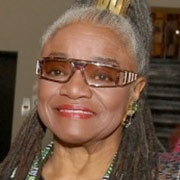 Interview: Ringgold, Faith, 2008 Faith Ringgold began her artistic career more than fifty years ago as a painter. Today, she is best known for her painted story quilts – art that combines painting, quilted fabric and storytelling. She has exhibited in major museums in the USA, Europe, South America, Asia, Africa, and the Middle East. She is in the permanent collection of many museums including the Studio Museum in Harlem, the Solomon R. Guggenheim Museum, The Metropolitan Museum of Art, and The Museum of Modern Art. Her first book, Tar Beach was a Caldecott Honor Book and winner of the Coretta Scott King Award for Illustration, among numerous other honors. She has written and illustrated eleven children’s books. She has received more than seventy-five awards, fellowships, citations and honors, including the Solomon R. Guggenheim Fellowship for painting, two National Endowment for the Arts Awards and seventeen honorary doctorates, one of which is from her alma mater The City College of New York. In this interview Ringgold begins with her childhood in Harlem, New York City, during the 1930s and the influences that impacted her life. She then addresses her experience during the Harlem Renaissance and struggles as a Black female artist, then moves on to her social activism within her art and the development of her mature style.
Interview: Ringgold, Faith, 2008 Faith Ringgold began her artistic career more than fifty years ago as a painter. Today, she is best known for her painted story quilts – art that combines painting, quilted fabric and storytelling. She has exhibited in major museums in the USA, Europe, South America, Asia, Africa, and the Middle East. She is in the permanent collection of many museums including the Studio Museum in Harlem, the Solomon R. Guggenheim Museum, The Metropolitan Museum of Art, and The Museum of Modern Art. Her first book, Tar Beach was a Caldecott Honor Book and winner of the Coretta Scott King Award for Illustration, among numerous other honors. She has written and illustrated eleven children’s books. She has received more than seventy-five awards, fellowships, citations and honors, including the Solomon R. Guggenheim Fellowship for painting, two National Endowment for the Arts Awards and seventeen honorary doctorates, one of which is from her alma mater The City College of New York. In this interview Ringgold begins with her childhood in Harlem, New York City, during the 1930s and the influences that impacted her life. She then addresses her experience during the Harlem Renaissance and struggles as a Black female artist, then moves on to her social activism within her art and the development of her mature style. -
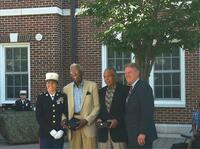 Interview: Robinson, Daniel Edward, 2008 Daniel Robinson was born in Philadelphia, Pennsylvania in 1925. After graduating from high school in 1943, he joined the Marine Corps. He did his basic training at Camp Lejeune. He served in the Pacific Theater during World War II as part of a defense battalion. In 2012, Robinson was awarded the Congressional Gold Medal as a member of the Montford Point Marines. In the accompanying photograph, Robinson (second from right) is receiving the Congressional Gold Medal from Congressman Frank Pallone Jr.
Interview: Robinson, Daniel Edward, 2008 Daniel Robinson was born in Philadelphia, Pennsylvania in 1925. After graduating from high school in 1943, he joined the Marine Corps. He did his basic training at Camp Lejeune. He served in the Pacific Theater during World War II as part of a defense battalion. In 2012, Robinson was awarded the Congressional Gold Medal as a member of the Montford Point Marines. In the accompanying photograph, Robinson (second from right) is receiving the Congressional Gold Medal from Congressman Frank Pallone Jr. -
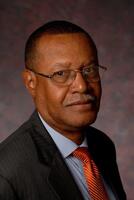 Interview: Roper, Richard, 1991 Richard Roper graduated from Rutgers-Newark with a bachelor's degree in economics and completed a master's in public affairs at Princeton University. During his years at Rutgers-Newark, he served first as the president of the NAACP chapter, and then as co-founder and president of the Black Organization of Students (BOS), which was organized out of the time of social unrest following the Newark Riots and an era of civil rights struggle. After college Roper held a number of positions in Newark and federal government. He was a legislative aide and lobbyist for Newark's first African-American mayor, Kenneth Gibson, served as director of the Office of Newark Studies, was appointed special assistant to the secretary of commerce, Juanita Kreps under the Carter Administration, and served for 12 years as assistant dean at the Woodrow Wilson School of Public and International Affairs at Princeton University.
Interview: Roper, Richard, 1991 Richard Roper graduated from Rutgers-Newark with a bachelor's degree in economics and completed a master's in public affairs at Princeton University. During his years at Rutgers-Newark, he served first as the president of the NAACP chapter, and then as co-founder and president of the Black Organization of Students (BOS), which was organized out of the time of social unrest following the Newark Riots and an era of civil rights struggle. After college Roper held a number of positions in Newark and federal government. He was a legislative aide and lobbyist for Newark's first African-American mayor, Kenneth Gibson, served as director of the Office of Newark Studies, was appointed special assistant to the secretary of commerce, Juanita Kreps under the Carter Administration, and served for 12 years as assistant dean at the Woodrow Wilson School of Public and International Affairs at Princeton University. -
 Interview: Roper, Richard, 2019 Born in 1945 in DeLand, Florida, Richard W. Roper grew up in Brunswick, Georgia and attended public schools there. As a teenager, he became involved in the civil rights movement through a local chapter of the NAACP. After attending West Virginia State for two years, Roper enrolled at Rutgers-Newark's University College in 1965 and then transferred to the Rutgers Newark College of Arts and Sciences as a junior in 1966. He co-founded the Black Organization of Students (BOS) at Rutgers-Newark and made a presentation to the Rutgers Board of Governors in 1968 to address issues of diversity and representation on campus. After graduating in 1968, he worked for the Department of Higher Education in New Jersey, implementing the Educational Opportunity Fund (EOF) at its inception. When members of BOS occupied Conklin Hall in February 1969, Roper served as a liaison to the student protesters. He earned a M.P.A. from Princeton University's (then called) Woodrow Wilson School of Public and International Affairs. Early in his career, he worked as an education program director at the Greater Newark Urban Coalition, as an assistant to the director of the Division of Youth and Family Services, as a legislative aide for Newark Mayor Ken Gibson, and as Director of the Office of Newark Studies. He worked in the Carter administration as Special Assistant to Secretary of Commerce Juanita Kreps and then as Director of the Department's Office of State and Local Government Assistance. He held several positions over twelve years at Princeton's Woodrow Wilson School. He was a Senior Fellow at the Nelson A. Rockefeller Institute of Government. He served as the Director of the Port Authority of New York and New Jersey's Office of Economic and Policy Analysis and Office of Business and Job Opportunity. He ran his own consulting firm, the Roper Group, and then returned to the Port Authority as Director of the Planning Department. He has served on the Rutgers Board of Governors and on boards at La Casa de Don Pedro, New Jersey Coalition for Diverse and Inclusive Schools and Bethany Baptist Church in Newark. He is the co-editor of A Mayor for All the People: Ken Gibson's Newark.
Interview: Roper, Richard, 2019 Born in 1945 in DeLand, Florida, Richard W. Roper grew up in Brunswick, Georgia and attended public schools there. As a teenager, he became involved in the civil rights movement through a local chapter of the NAACP. After attending West Virginia State for two years, Roper enrolled at Rutgers-Newark's University College in 1965 and then transferred to the Rutgers Newark College of Arts and Sciences as a junior in 1966. He co-founded the Black Organization of Students (BOS) at Rutgers-Newark and made a presentation to the Rutgers Board of Governors in 1968 to address issues of diversity and representation on campus. After graduating in 1968, he worked for the Department of Higher Education in New Jersey, implementing the Educational Opportunity Fund (EOF) at its inception. When members of BOS occupied Conklin Hall in February 1969, Roper served as a liaison to the student protesters. He earned a M.P.A. from Princeton University's (then called) Woodrow Wilson School of Public and International Affairs. Early in his career, he worked as an education program director at the Greater Newark Urban Coalition, as an assistant to the director of the Division of Youth and Family Services, as a legislative aide for Newark Mayor Ken Gibson, and as Director of the Office of Newark Studies. He worked in the Carter administration as Special Assistant to Secretary of Commerce Juanita Kreps and then as Director of the Department's Office of State and Local Government Assistance. He held several positions over twelve years at Princeton's Woodrow Wilson School. He was a Senior Fellow at the Nelson A. Rockefeller Institute of Government. He served as the Director of the Port Authority of New York and New Jersey's Office of Economic and Policy Analysis and Office of Business and Job Opportunity. He ran his own consulting firm, the Roper Group, and then returned to the Port Authority as Director of the Planning Department. He has served on the Rutgers Board of Governors and on boards at La Casa de Don Pedro, New Jersey Coalition for Diverse and Inclusive Schools and Bethany Baptist Church in Newark. He is the co-editor of A Mayor for All the People: Ken Gibson's Newark. -
Interview: Sanks King, Vivian, 1991Vivian Sanks King was a member of the NAACP while enrolled at Rutgers-Newark, but migrated toward the more militant Black Organization of Students (BOS), and became an active leader. She graduated in 1970 with a political science degree from the College of Arts and Sciences at Rutgers-Newark, and in 1985 completed her law degree at Seton Hall Law School. She served as General Counsel for the University Medicine and Dentistry of New Jersey (UMDNJ) before going into private practice and has received numerous awards and honors for her dedicated service in law and policy. She presently serves on the Boards of Leadership Newark, New Jersey Public Policy Research Institute, Planned Parenthood of Metropolitan New Jersey, New Jersey Women and AIDS Network, the Garden State Bar Association, and is past chair of the Community Health Law Project.
-
 Interview: Shuford, Deborah, 2018 Deborah Shuford was born in Newark, New Jersey in 1959. Her parents grew up in Lowndes County, Alabama, before moving to Newark. For most of her childhood, her family lived in the Weequahic section. Deborah attended Chancellor Elementary School and Arts High School in Newark. During one summer in high school, Deborah attended the Technical Enrichment Program at Stevens Tech in Hoboken. From 1977 to 1981, Deborah went to Douglass College. She began as an engineering major and switched to journalism and English literature. Deborah earned her bachelor's degree in the Douglass College Class of 1981. Deborah worked for many years in the communications field. She interned at WOR-AM talk radio. She worked at ABC Radio and Television Network and then at the Public Broadcasting Service (PBS). In 2001, Deborah began studying for her master's degree at American University. After earning her master's in film in 2003, Deborah worked as a professor at institutions of higher education, including McDaniel College, Howard University and Rutgers University, where she developed a variety of courses in film studies and African American studies. She also worked as a producer, writer and documentary filmmaker. In addition to being an active alumna at Rutgers-New Brunswick, Deborah has volunteered at the New Jersey Tree Foundation and as a career coach at New Start. In the first interview session, recorded on June 8, 2018, Deborah discusses her family's history in Lowndes County, Alabama, notably her grandmother's involvement in the voter registration efforts spurred on by Stokely Carmichael and the Student Non-Violent Coordinating Committee in the summer of 1965. In discussing her childhood, Deborah talks about her family, siblings, parents' careers, traveling, education and neighborhoods in Newark. In the second interview, Deborah talks about the military service of her family members. She traces her family's roots in Alabama and her parents' migration to New Jersey. Growing up in the Weequahic section of Newark, she compares and contrasts the city before and after the Newark rebellion of 1967. In the third interview session, Deborah discusses her experiences during high school at Arts High in Newark. In 1977, she began attending Douglass College as an engineering major. She switched to journalism and recalls memorable professors Roger Cohen in journalism and Cheryl Wall in English. She describes student life and traditions at Douglass and the impact that Dean Jewel Plummer Cobb had upon her, as well as the college.
Interview: Shuford, Deborah, 2018 Deborah Shuford was born in Newark, New Jersey in 1959. Her parents grew up in Lowndes County, Alabama, before moving to Newark. For most of her childhood, her family lived in the Weequahic section. Deborah attended Chancellor Elementary School and Arts High School in Newark. During one summer in high school, Deborah attended the Technical Enrichment Program at Stevens Tech in Hoboken. From 1977 to 1981, Deborah went to Douglass College. She began as an engineering major and switched to journalism and English literature. Deborah earned her bachelor's degree in the Douglass College Class of 1981. Deborah worked for many years in the communications field. She interned at WOR-AM talk radio. She worked at ABC Radio and Television Network and then at the Public Broadcasting Service (PBS). In 2001, Deborah began studying for her master's degree at American University. After earning her master's in film in 2003, Deborah worked as a professor at institutions of higher education, including McDaniel College, Howard University and Rutgers University, where she developed a variety of courses in film studies and African American studies. She also worked as a producer, writer and documentary filmmaker. In addition to being an active alumna at Rutgers-New Brunswick, Deborah has volunteered at the New Jersey Tree Foundation and as a career coach at New Start. In the first interview session, recorded on June 8, 2018, Deborah discusses her family's history in Lowndes County, Alabama, notably her grandmother's involvement in the voter registration efforts spurred on by Stokely Carmichael and the Student Non-Violent Coordinating Committee in the summer of 1965. In discussing her childhood, Deborah talks about her family, siblings, parents' careers, traveling, education and neighborhoods in Newark. In the second interview, Deborah talks about the military service of her family members. She traces her family's roots in Alabama and her parents' migration to New Jersey. Growing up in the Weequahic section of Newark, she compares and contrasts the city before and after the Newark rebellion of 1967. In the third interview session, Deborah discusses her experiences during high school at Arts High in Newark. In 1977, she began attending Douglass College as an engineering major. She switched to journalism and recalls memorable professors Roger Cohen in journalism and Cheryl Wall in English. She describes student life and traditions at Douglass and the impact that Dean Jewel Plummer Cobb had upon her, as well as the college. -
Interview: Snell, Harrison, 1991Harrison Snell grew up in Newark and graduated from Rutgers-Newark in 1970. He received his law degree from Rutgers-Newark School of Law in 1973, and has practiced law for many years as a member of the State Bar Associations of New Jersey, New York, and Washington, DC. While at Rutgers-Newark, he served as president of the Black Organization of Students (BOS) and played an integral part in the planning and negotiation of the 1969 takeover of Conklin Hall and related events.
-
Interview: Stokes, Ronald J., 2015Ronald J. Stokes was born in East Orange, New Jersey in 1946. During the Vietnam War, Stokes served in the United States Army. He attended Rutgers-Newark and graduated with a degree in Management in 1983.
-
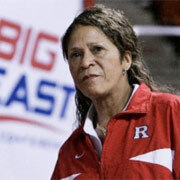 Interview: Stringer, C. Vivian, 2009 C. Vivian Stringer is the former head coach of the Rutgers University women’s basketball team from 1995 to 2022. Stringer holds the distinction of being the first coach, men’s or women’s, in NCAA history to lead three different women’s programs to the NCAA Final Four. She is the fifth all-time winningest coach in women’s basketball. She was formerly the head coach of the University of Iowa women’s basketball team and the Cheyney State women’s basketball team. Stringer was the 2001 inductee into the Women’s Basketball Hall of Fame. She is the three-time national coach of the year and was the assistant coach for the gold medal-winning 2004 U.S. Olympic team. In 2009 In 2018, she won her 1,000th game as a head coach, which made her the first African-American college basketball coach to win 1,000 games. She was honored with the degree of Honorary Doctor of Humanities from Howard University on May 10, 2008, the university's 140th commencement address. She was also inducted as an honorary member of Alpha Kappa Alpha sorority on July 15, 2008 during the sorority's Centennial Ball in Washington, DC. Stringer is also the author of the autobiographical book “Standing Tall: A Memoir of Tragedy and Triumph”. C. Vivian Stringer discusses the leadership style she has developed over her years as a coach and the particular responsibility she feels as a black woman in a leadership position. She also talks about the way she helps transforms the lives of young women and ends with advice she gives to the interviewer as a young woman with hopes of leadership in her future.
Interview: Stringer, C. Vivian, 2009 C. Vivian Stringer is the former head coach of the Rutgers University women’s basketball team from 1995 to 2022. Stringer holds the distinction of being the first coach, men’s or women’s, in NCAA history to lead three different women’s programs to the NCAA Final Four. She is the fifth all-time winningest coach in women’s basketball. She was formerly the head coach of the University of Iowa women’s basketball team and the Cheyney State women’s basketball team. Stringer was the 2001 inductee into the Women’s Basketball Hall of Fame. She is the three-time national coach of the year and was the assistant coach for the gold medal-winning 2004 U.S. Olympic team. In 2009 In 2018, she won her 1,000th game as a head coach, which made her the first African-American college basketball coach to win 1,000 games. She was honored with the degree of Honorary Doctor of Humanities from Howard University on May 10, 2008, the university's 140th commencement address. She was also inducted as an honorary member of Alpha Kappa Alpha sorority on July 15, 2008 during the sorority's Centennial Ball in Washington, DC. Stringer is also the author of the autobiographical book “Standing Tall: A Memoir of Tragedy and Triumph”. C. Vivian Stringer discusses the leadership style she has developed over her years as a coach and the particular responsibility she feels as a black woman in a leadership position. She also talks about the way she helps transforms the lives of young women and ends with advice she gives to the interviewer as a young woman with hopes of leadership in her future. -
Interview: Van Blake, Donald, 2007Donald Van Blake was born in Plainfield, New Jersey, and during the Second World War served in the "Red Ball Express" as a truck driver. After the war, he was active in the Civil Rights Movement and went on to have a career in transportation.
-
 Interview: Venable, Bernice, 2015 Bernice Proctor Venable grew up in Somerville, New Jersey. In the interview, she discusses being raised by a foster parent after the age of thirteen and the support she received from her community in Somerville. She went to Douglass College, where she sang in the Rutgers University Choir and worked as a reporter for The Caellian. She majored in Spanish. Later, she earned her M.A. in Spanish Language and Literature from Rutgers, M.A. in Guidance and Counseling from Rider, and doctorate in Educational Administration from Rutgers. She went on to a career in education as a teacher, guidance counselor and administrator in Franklin, Somerville, Elizabeth, Irvington and Trenton. She served as Superintendent in Trenton for six years and in Irvington for two years. She testified on behalf of the plaintiffs in Abbott v. Burke, the landmark decision in which the New Jersey Supreme Court ruled that the state must ensure parity in educational funding between poorer urban school districts and affluent suburban districts. In 1992, she received an honorary Doctor of Laws Degree from Trenton State College (now The College of New Jersey). She and her spouse funded a computer lab at the Hale Center that is dedicated to Paul Robeson. After retiring as an educator, she joined AlphaGraphics, working in sales and marketing.
Interview: Venable, Bernice, 2015 Bernice Proctor Venable grew up in Somerville, New Jersey. In the interview, she discusses being raised by a foster parent after the age of thirteen and the support she received from her community in Somerville. She went to Douglass College, where she sang in the Rutgers University Choir and worked as a reporter for The Caellian. She majored in Spanish. Later, she earned her M.A. in Spanish Language and Literature from Rutgers, M.A. in Guidance and Counseling from Rider, and doctorate in Educational Administration from Rutgers. She went on to a career in education as a teacher, guidance counselor and administrator in Franklin, Somerville, Elizabeth, Irvington and Trenton. She served as Superintendent in Trenton for six years and in Irvington for two years. She testified on behalf of the plaintiffs in Abbott v. Burke, the landmark decision in which the New Jersey Supreme Court ruled that the state must ensure parity in educational funding between poorer urban school districts and affluent suburban districts. In 1992, she received an honorary Doctor of Laws Degree from Trenton State College (now The College of New Jersey). She and her spouse funded a computer lab at the Hale Center that is dedicated to Paul Robeson. After retiring as an educator, she joined AlphaGraphics, working in sales and marketing. -
Interview: Walker, Steven, 2016In his interview, Steven Walker describes his upbringing in the town of Montclair, New Jersey during the mid-1960s, his experiences as a first-generation college student studying journalism at Livingston College at Rutgers-New Brunswick during the early 1980s, and his career as a journalist in the 1980s, 1990s and 2000s. With family roots going back to Jamaica, Walkers' grandparents came from Mississippi and North Carolina. During World War II, his father, a Montclair native, served in the Red Ball Express in France after the Allies invaded Europe in 1944. During his early school years, he experienced diversity in Montclair that had not existed when his parents were growing up there. This continued into his years at Livingston College, where he became a founding member of the Rutgers chapter of Kappa Delta Rho, an organization with members coming from a wide variety of backgrounds. He was also a regular contributor to the Daily Targum and the Black Voice, both student-run newspapers operating at Rutgers. After graduating from Livingston College in the Class of 1986, he started his professional journalism career writing for the Herald and News in Passaic, New Jersey. He went on to work for such publications as The Star-Ledger, The Source, The Orange Transcript, The West Orange Chronicle and The East Orange Record. After working as a field investigator for the N.J. Department of the Public Advocate, he became an investigator for the N.J. Division on Civil Rights. Walker lives in Montclair, New Jersey with his wife and son.
-
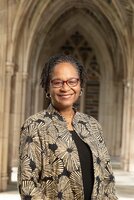 Interview: Wall, Cheryl A., 2015 Cheryl Wall (1948-2020) was a Board of Governors Zora Neale Hurston Distinguished Professor of English and former Chair of the English Department. Wall was an author and a specialist in Black women's writing, the Harlem Renaissance, and Zora Neale Hurston. She was a co-chair of the President's Council on Institutional Diversity and Equity. Joining Douglass College in 1972 as an assistant instructor, in her interview Wall described her role in the development of the college and its legacy today. She discussed the intrinsic value of the humanities in the context of a liberal arts education, student activism on campus, and the evolution of the Douglass Woman.
Interview: Wall, Cheryl A., 2015 Cheryl Wall (1948-2020) was a Board of Governors Zora Neale Hurston Distinguished Professor of English and former Chair of the English Department. Wall was an author and a specialist in Black women's writing, the Harlem Renaissance, and Zora Neale Hurston. She was a co-chair of the President's Council on Institutional Diversity and Equity. Joining Douglass College in 1972 as an assistant instructor, in her interview Wall described her role in the development of the college and its legacy today. She discussed the intrinsic value of the humanities in the context of a liberal arts education, student activism on campus, and the evolution of the Douglass Woman. -
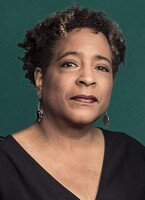 Interview: White, Deborah Gray, 2016 Deborah Gray White is the Board of Governors Distinguished Professor of History and Professor of History at Rutgers University. During her forty years at Rutgers, she has not only been a professor but also the co-director of "The Black Atlantic: Race, Nation and Gender" project at the Rutgers Center for Historical Analysis (1997-99), a research professor at the Rutgers Institute for Research on Women (1999-2000), and chair of the history department (2000-03). As an Americanist who specializes in African American and American Women’s history, Professor White is especially interested in issues of identity and the intersection of race, class, gender, and sexuality. In this interview, Dr. White begins by talking about the influential women in her childhood. Then the interview transitions to her work as a historian and what her title at Rutgers means. She also discusses her work directing a major institutional research project that uncovered the history of enslaved and disenfranchised populations in Rutgers history. The project resulted in the publication of the book Scarlet and Black: Slavery and Dispossession in Rutgers History. The interview ends with her advice for young Black women on how to obtain the type of success Dr. White has achieved.
Interview: White, Deborah Gray, 2016 Deborah Gray White is the Board of Governors Distinguished Professor of History and Professor of History at Rutgers University. During her forty years at Rutgers, she has not only been a professor but also the co-director of "The Black Atlantic: Race, Nation and Gender" project at the Rutgers Center for Historical Analysis (1997-99), a research professor at the Rutgers Institute for Research on Women (1999-2000), and chair of the history department (2000-03). As an Americanist who specializes in African American and American Women’s history, Professor White is especially interested in issues of identity and the intersection of race, class, gender, and sexuality. In this interview, Dr. White begins by talking about the influential women in her childhood. Then the interview transitions to her work as a historian and what her title at Rutgers means. She also discusses her work directing a major institutional research project that uncovered the history of enslaved and disenfranchised populations in Rutgers history. The project resulted in the publication of the book Scarlet and Black: Slavery and Dispossession in Rutgers History. The interview ends with her advice for young Black women on how to obtain the type of success Dr. White has achieved. -
Interview: Wilson, Clarence, 2011Clarence Wilson was born in Virginia and migrated to the North during the Great Depression in the 1930s, initially relocating to Pennsylvania and later to New Jersey. During the Great Depression, Wilson worked in the Civilian Conservation Corps, serving in a segregated unit. In the 1942, Wilson was inducted into the military where he served as a truck driver in the segregated 263rd Quartermaster and 3404th Quartermaster Truck Companies and was among the first waves of American soldiers to land in North Africa. Wilson participated in US military actions across North Africa, Sicily, and Italy until the war ended in 1945. After his honorable discharge, Wilson raised a family and worked in the chemical industry until his retirement.

